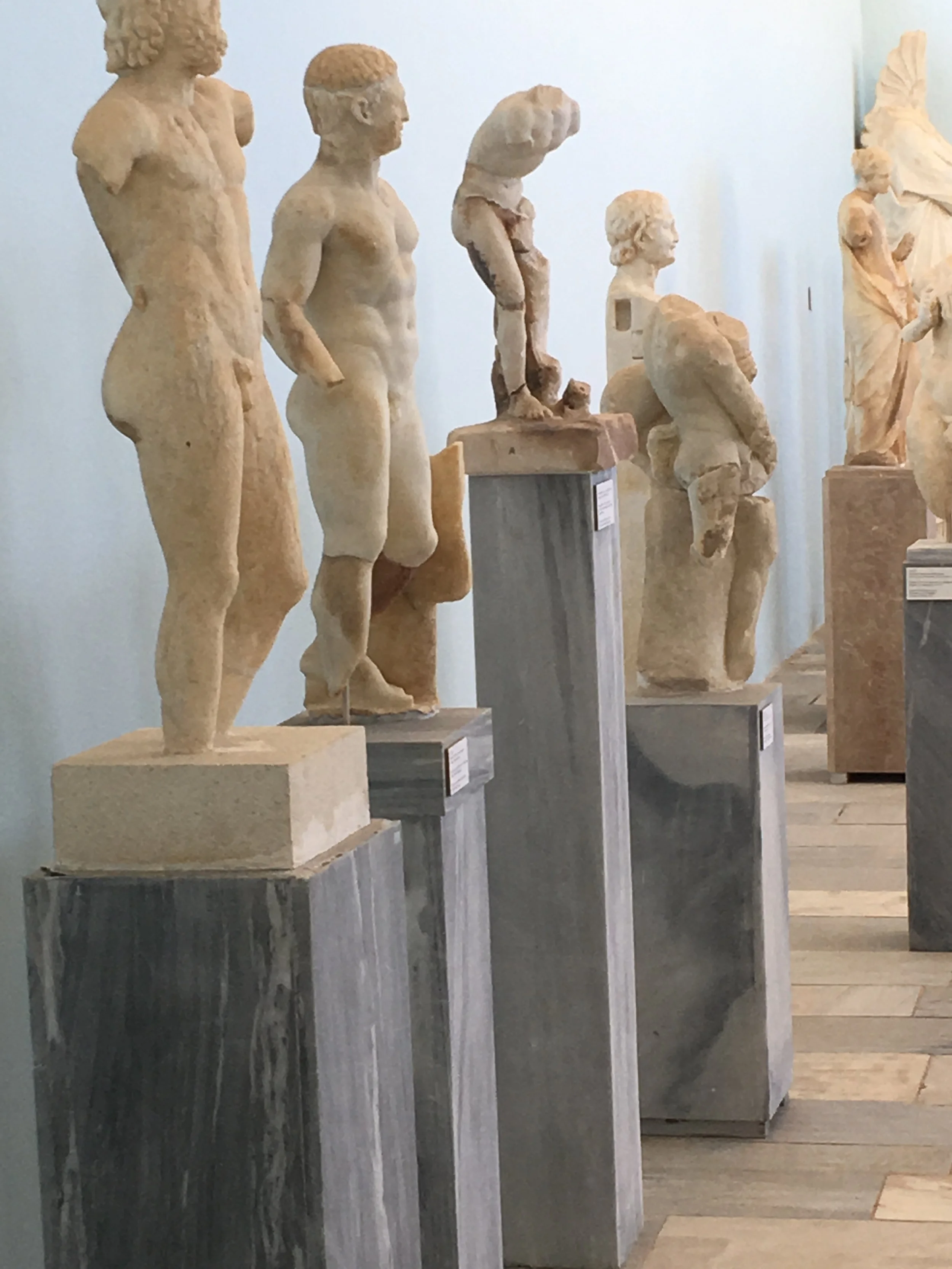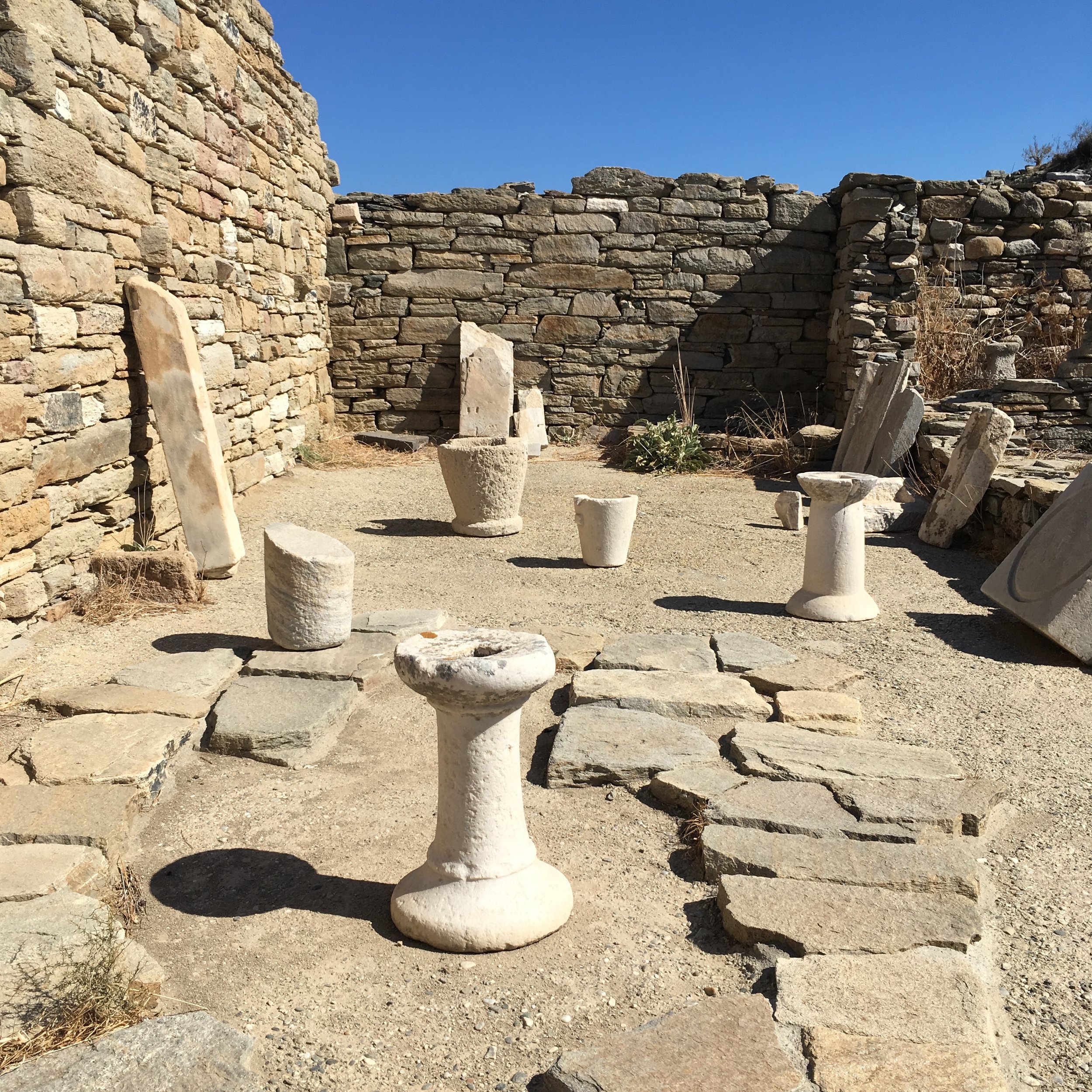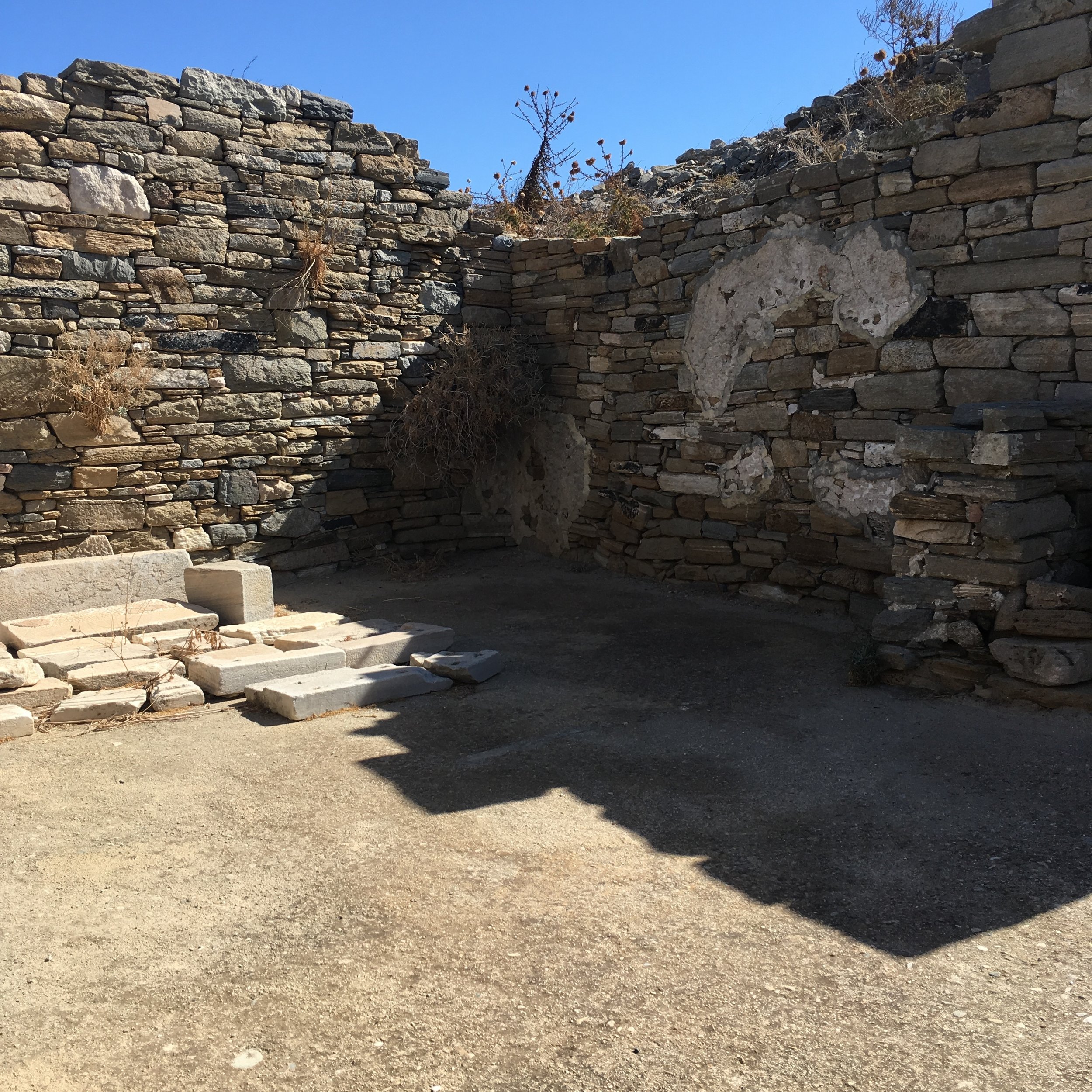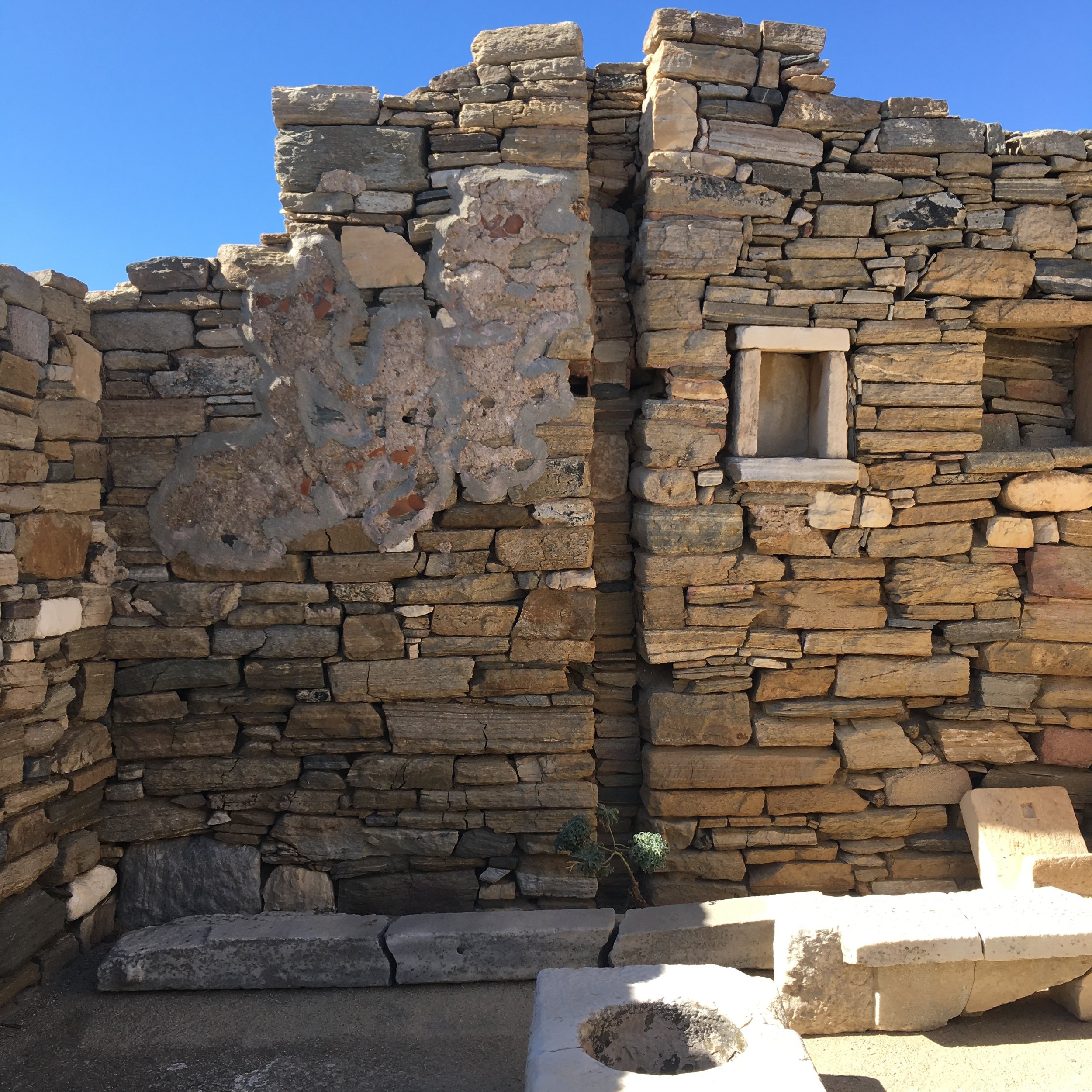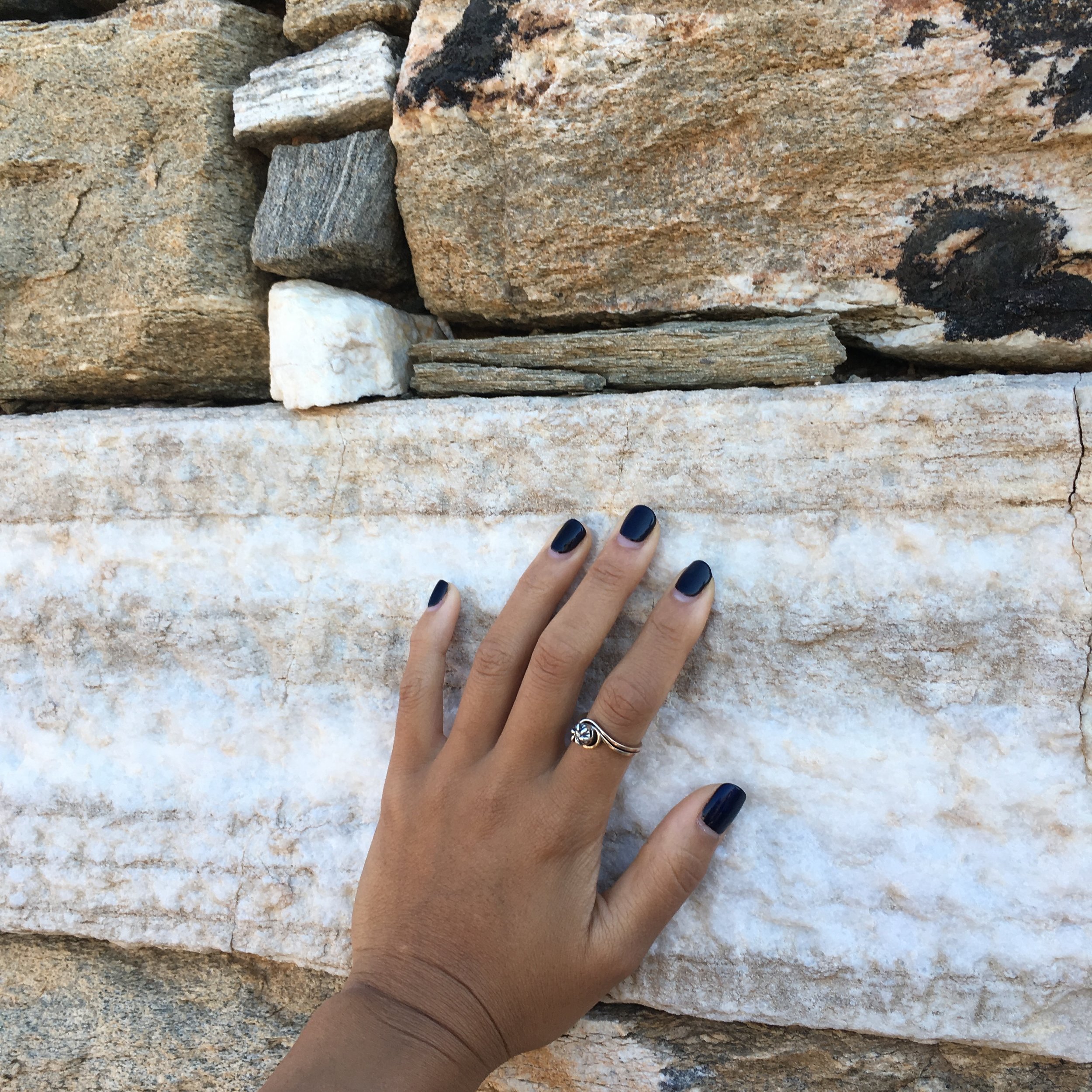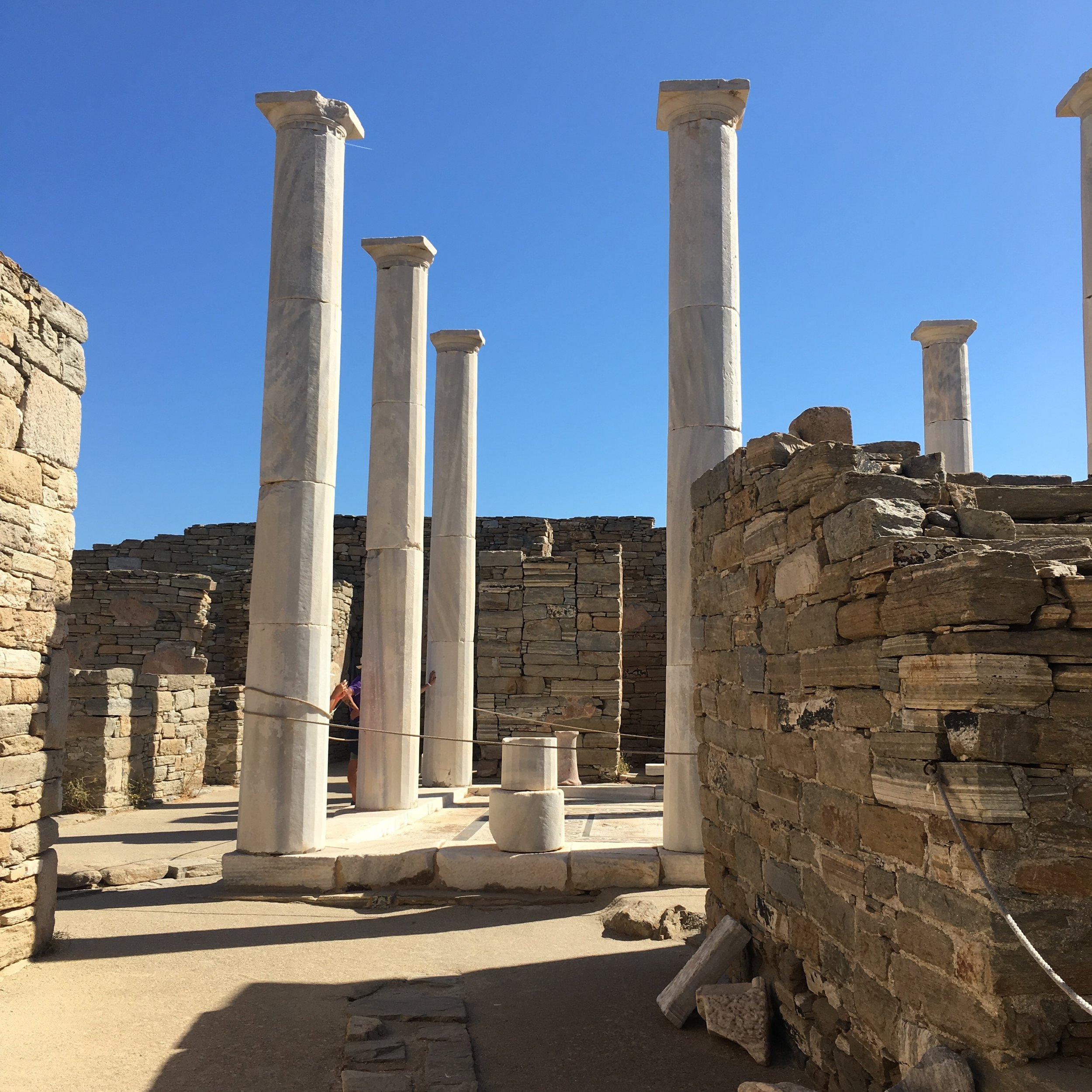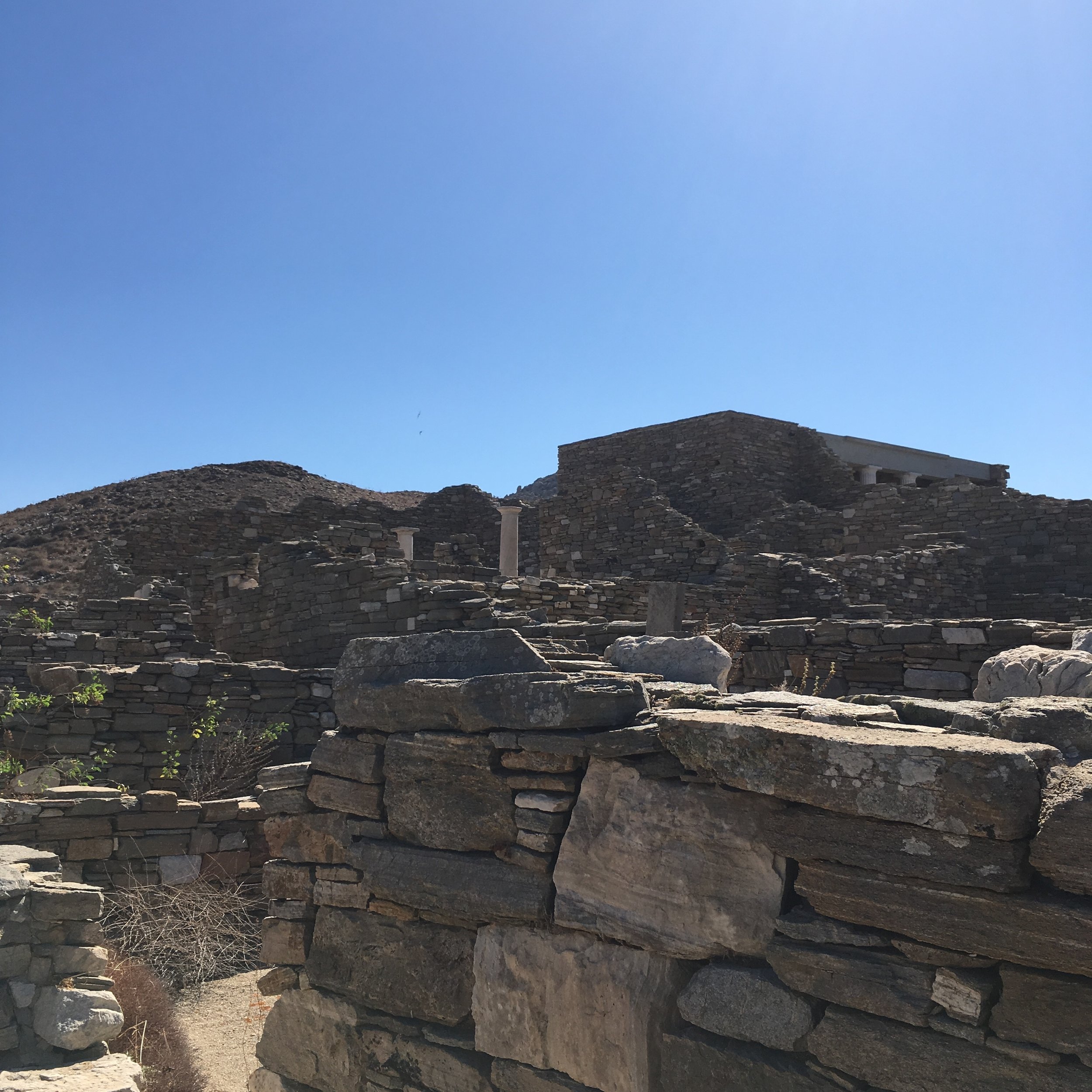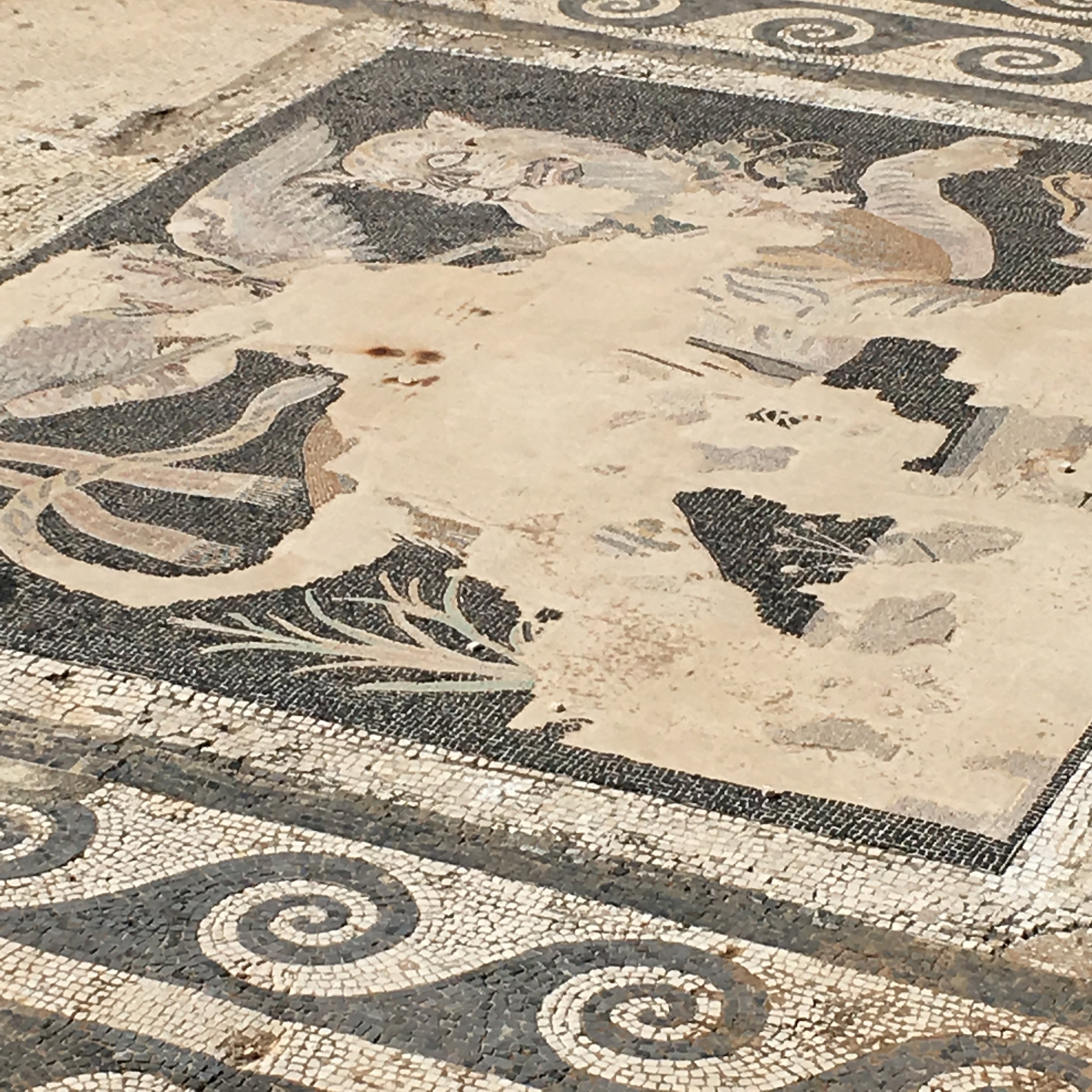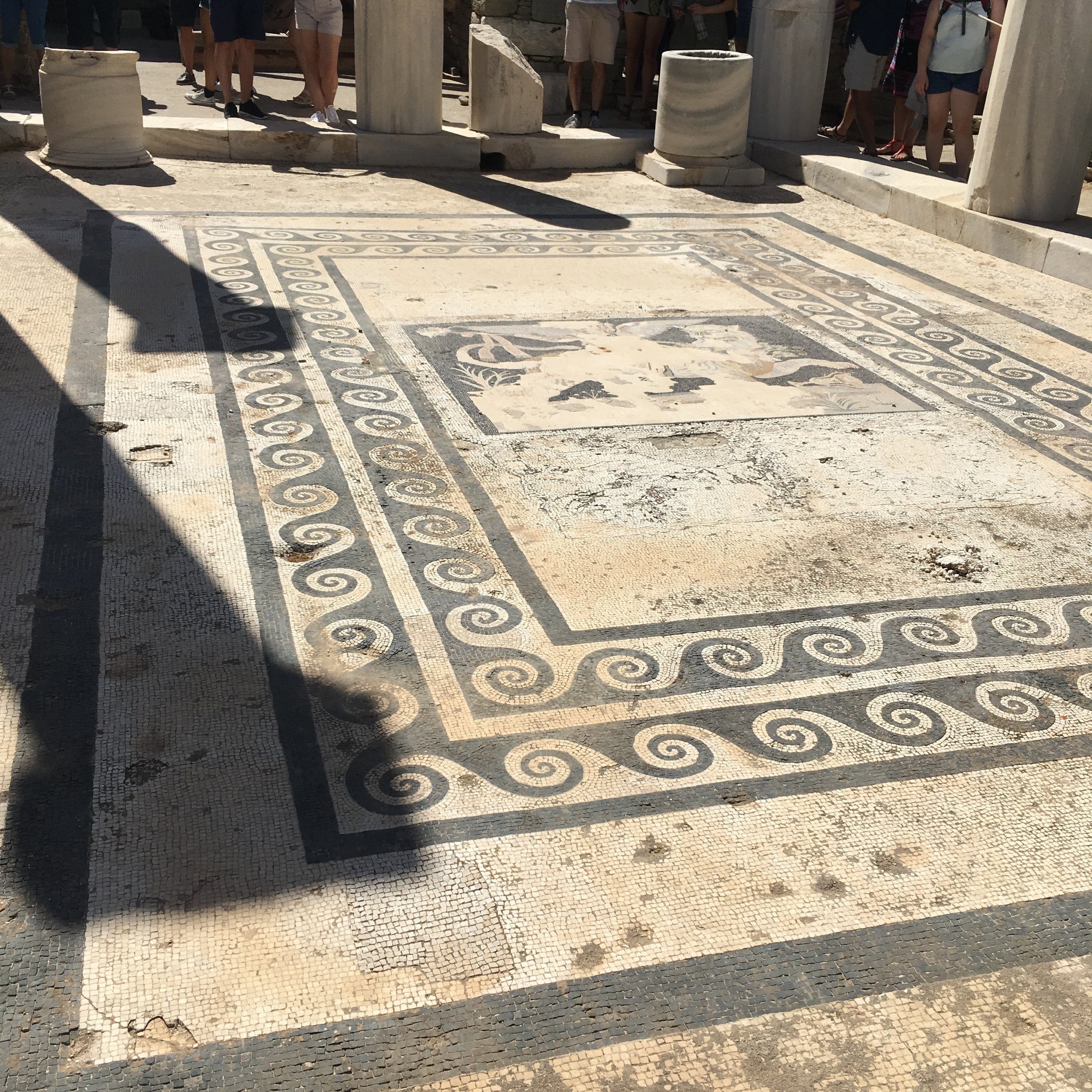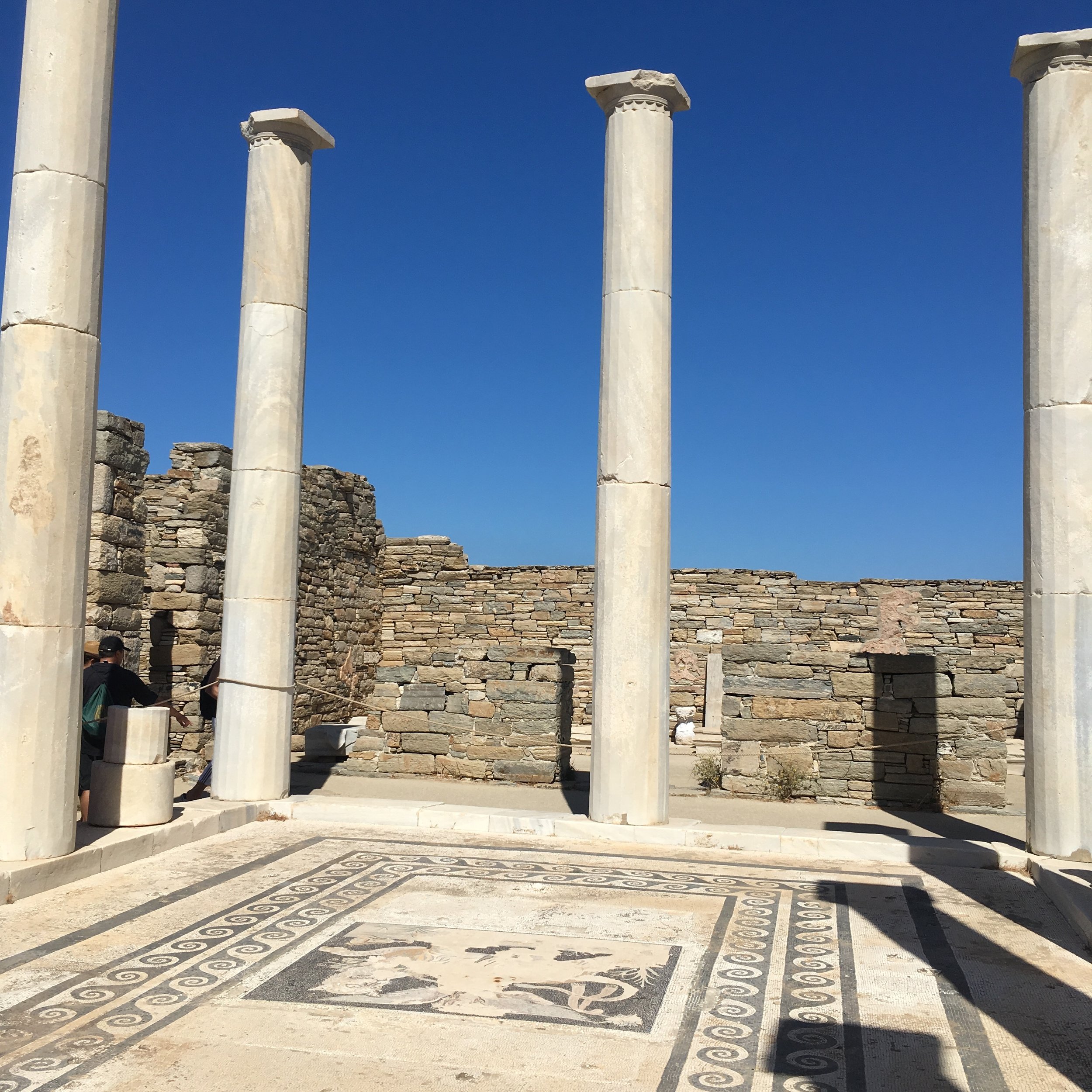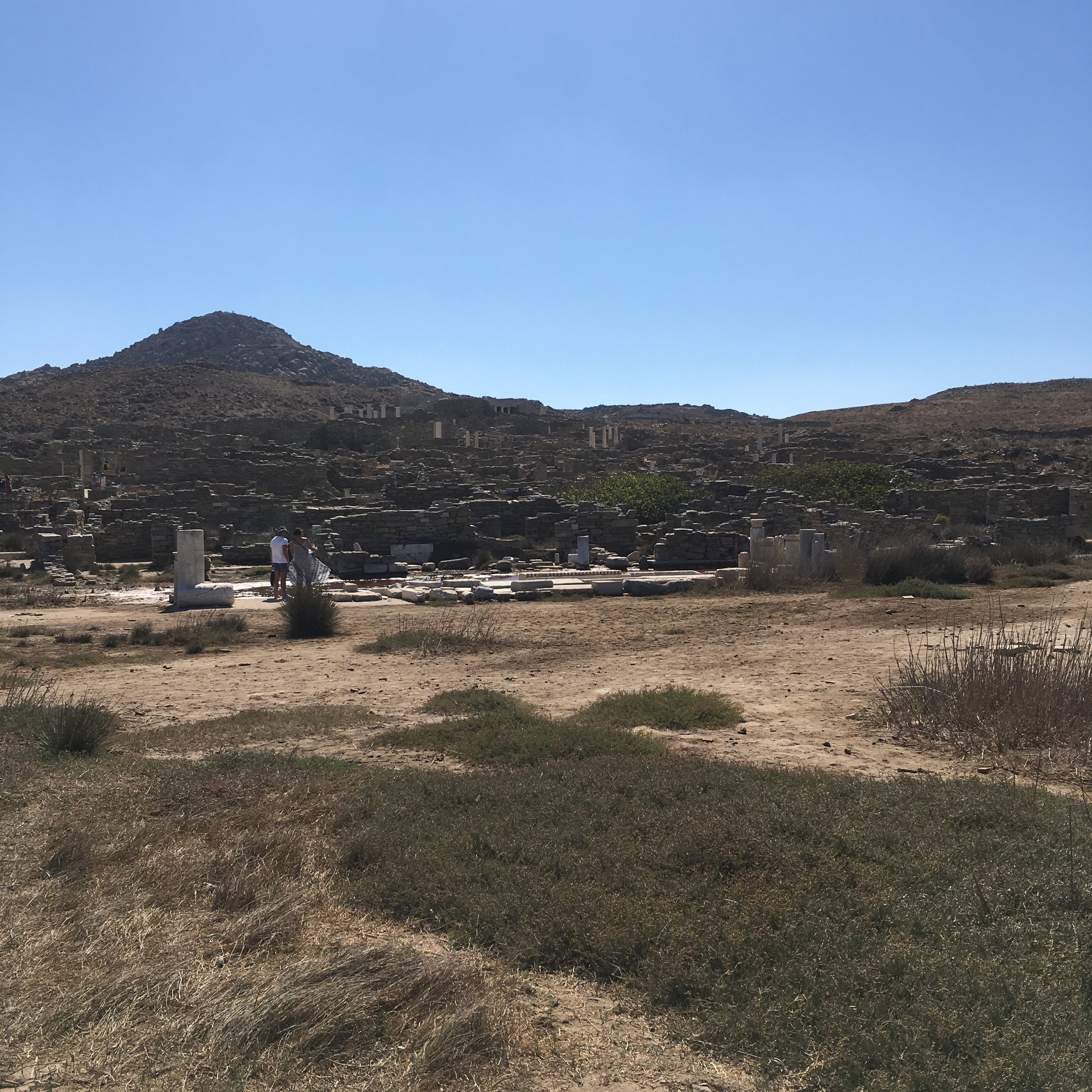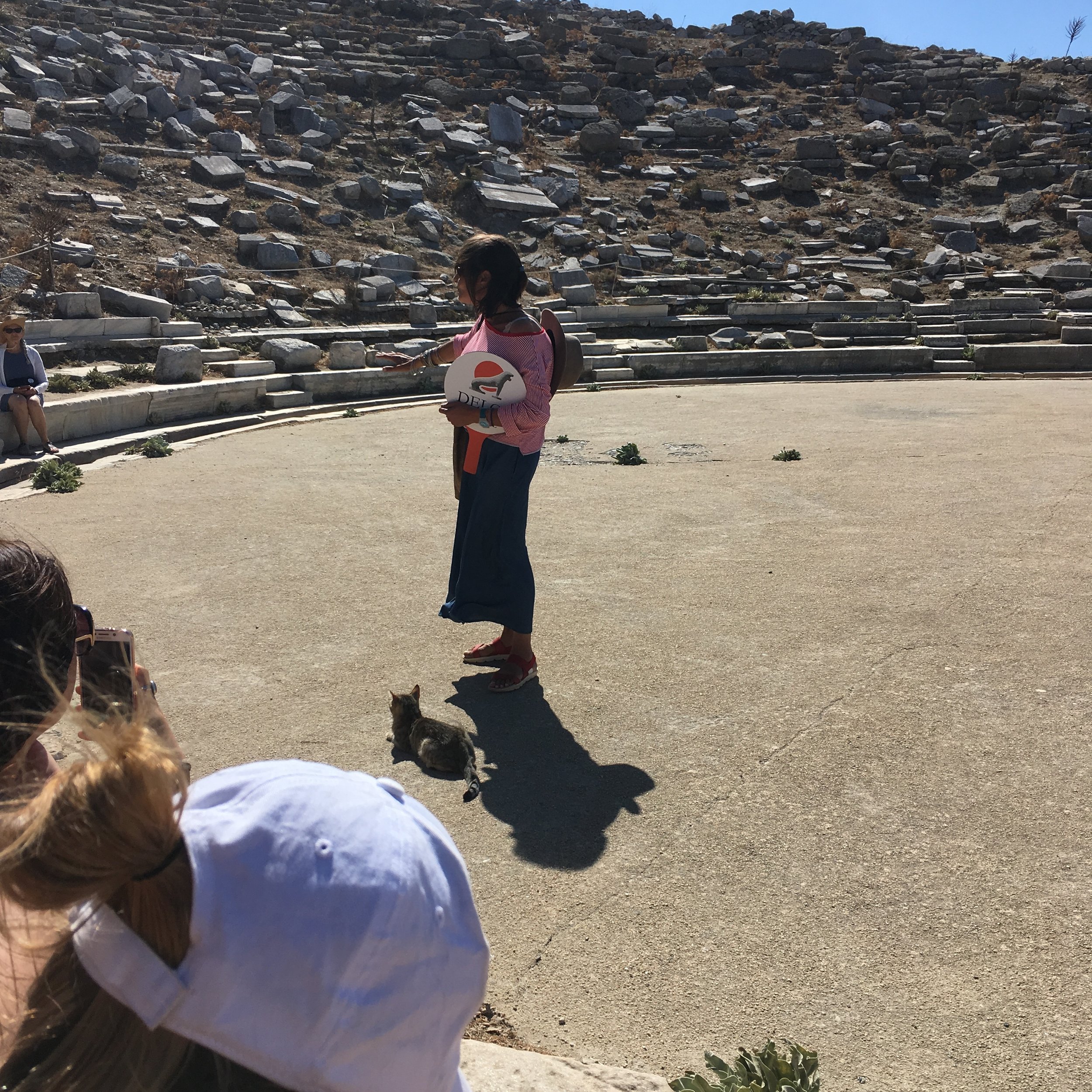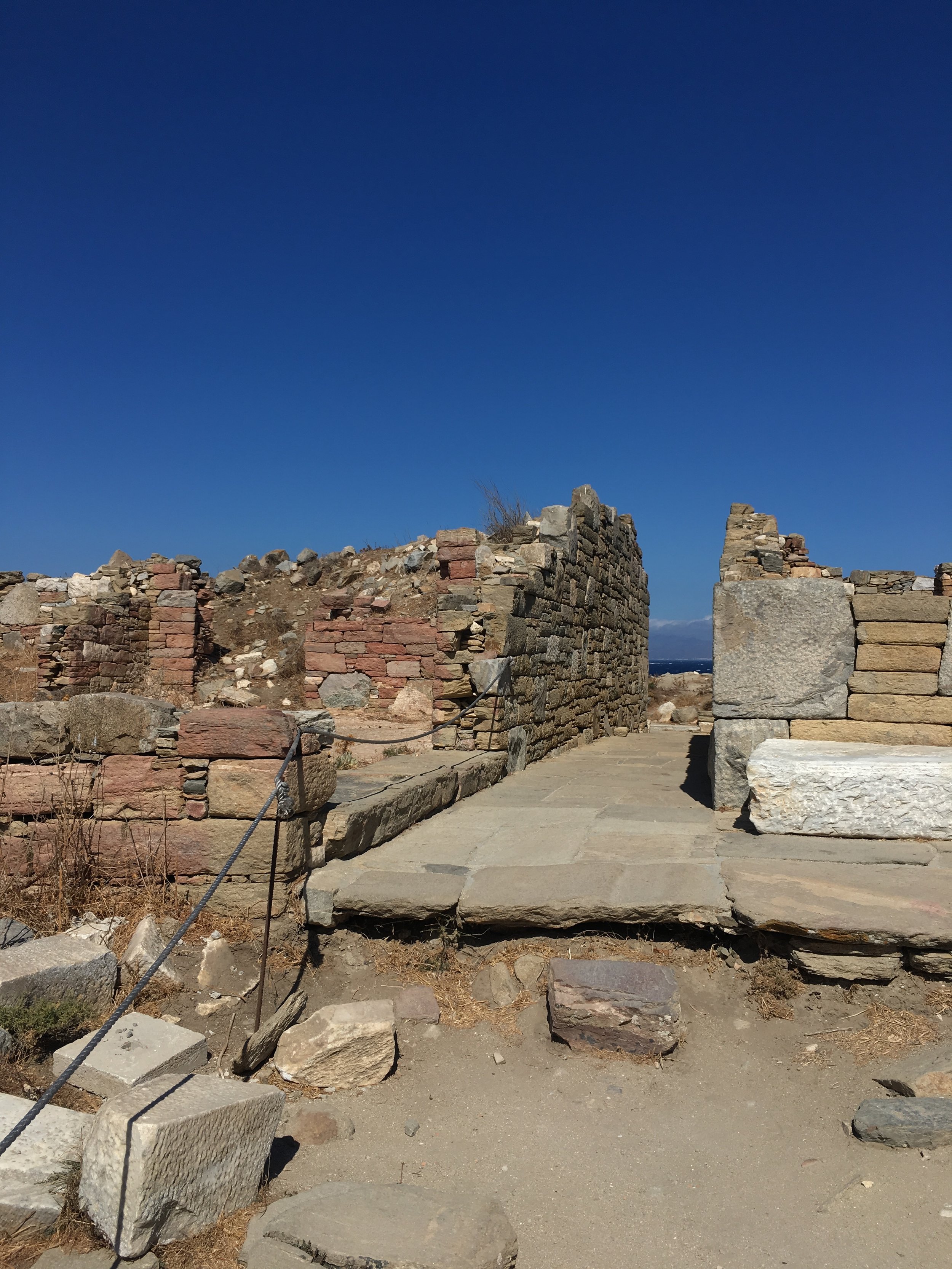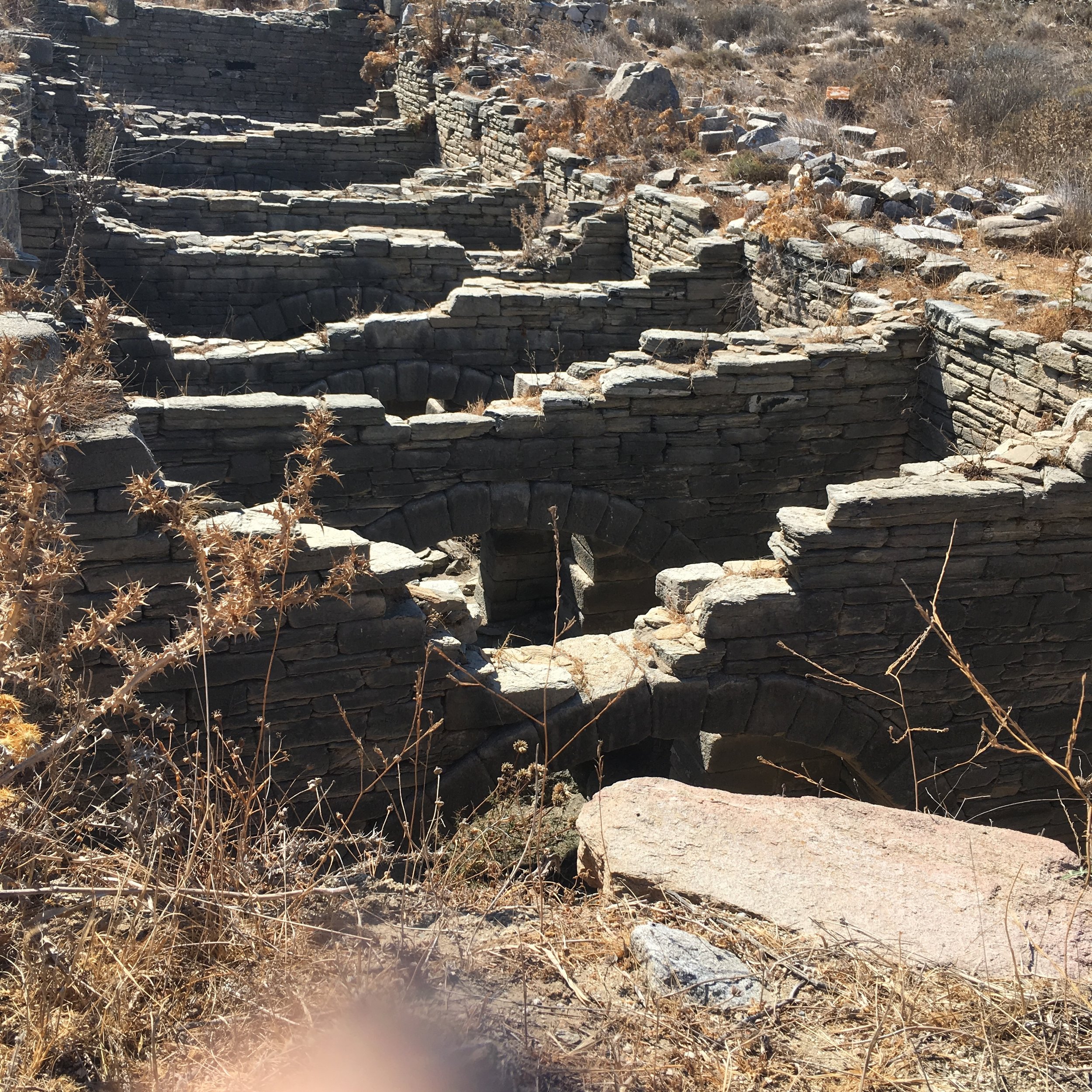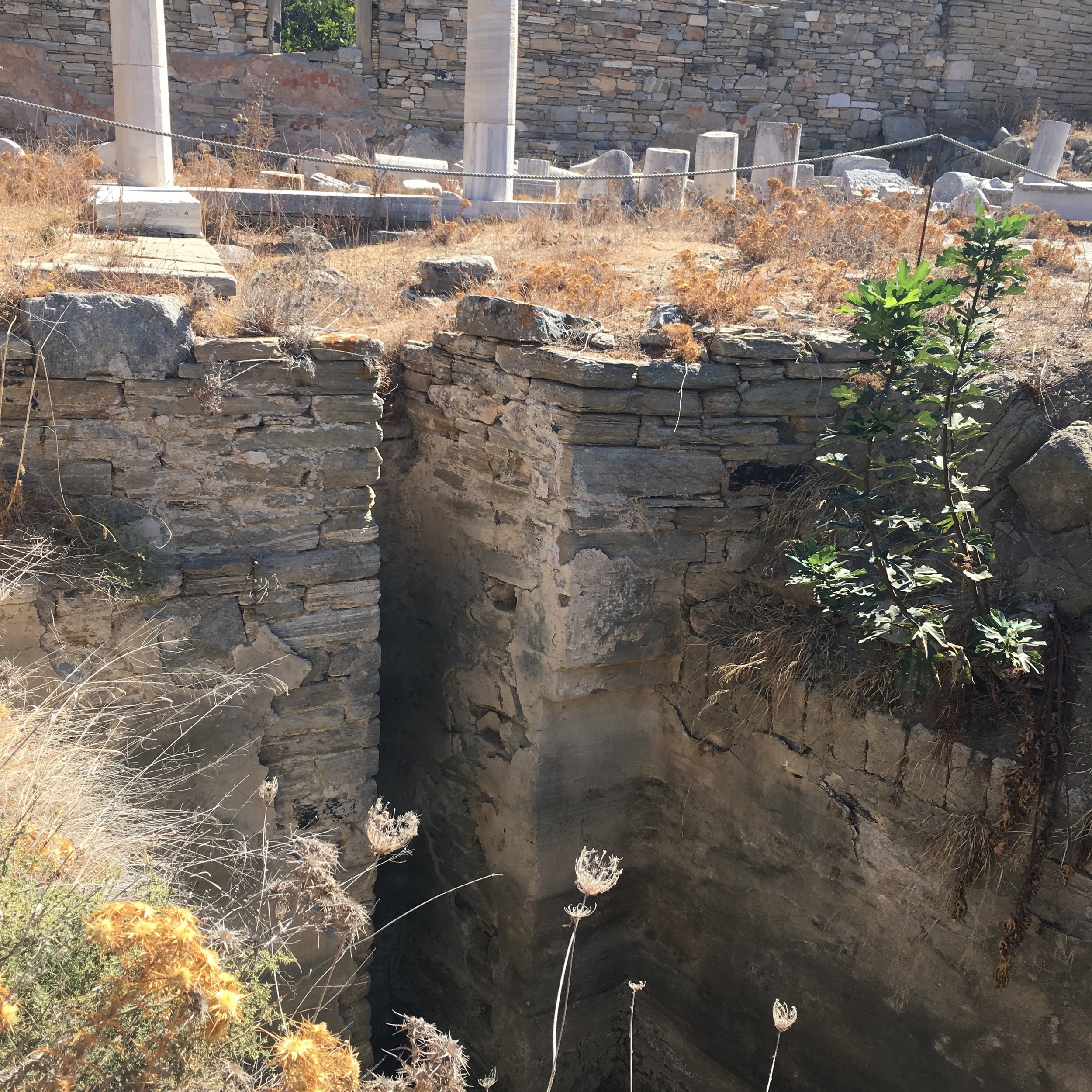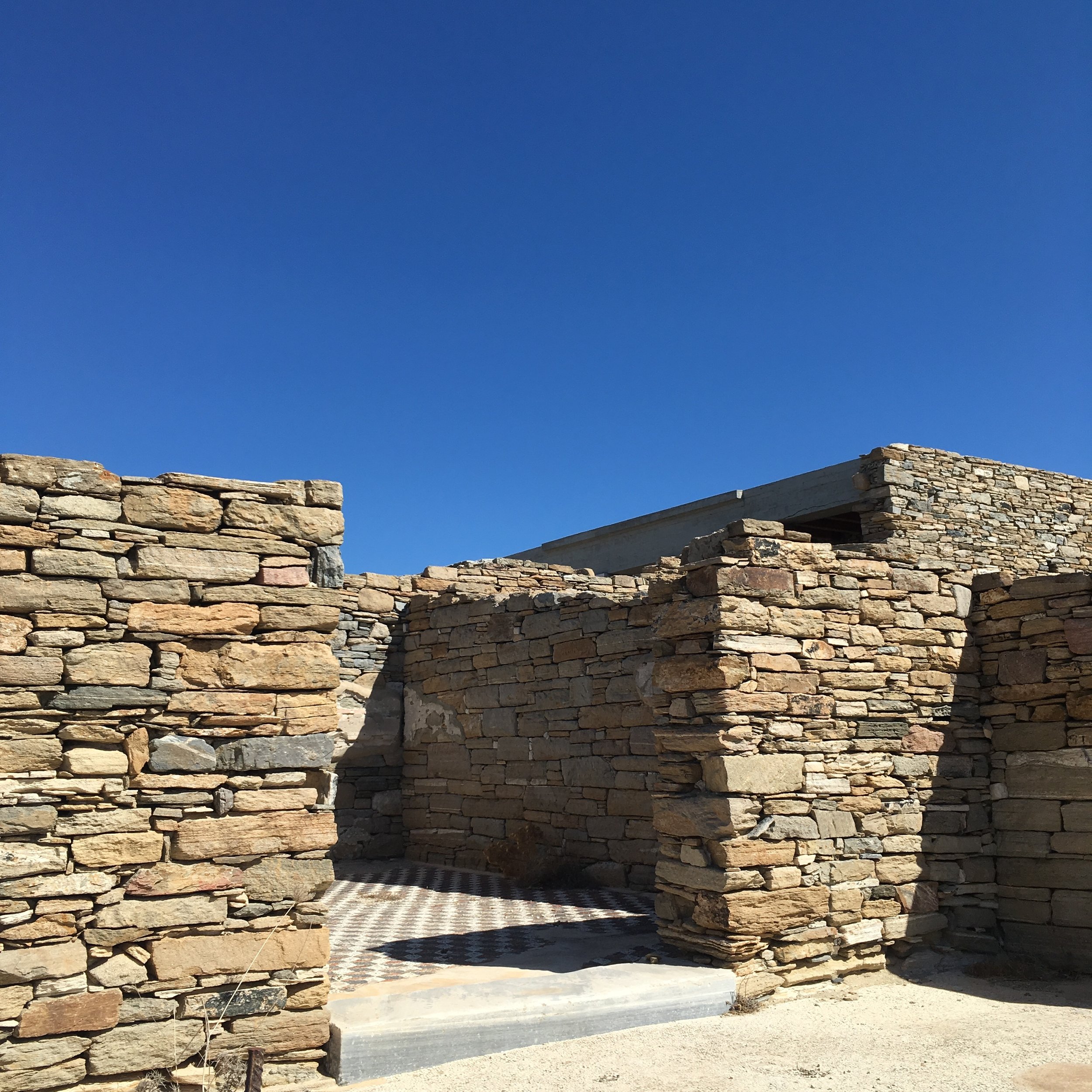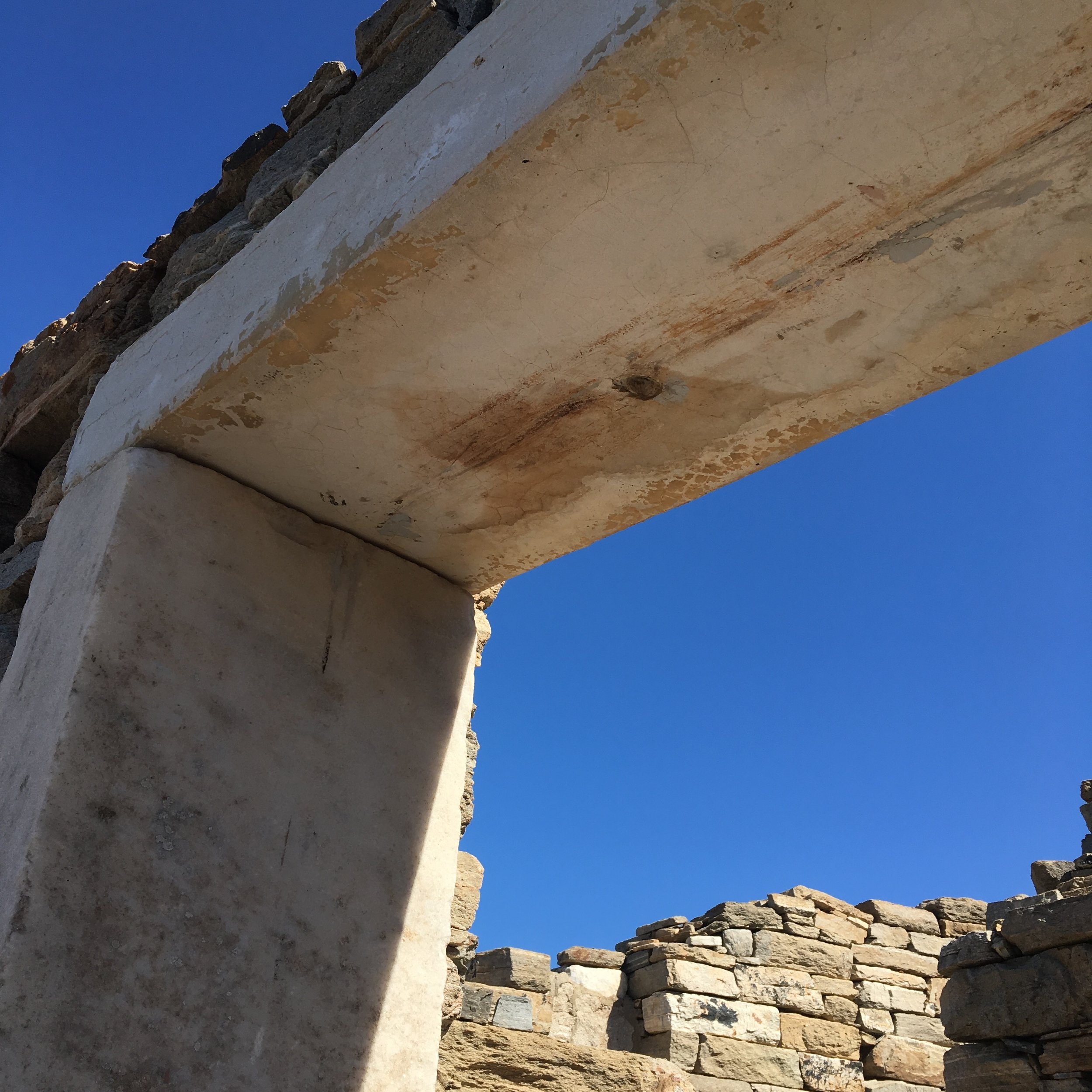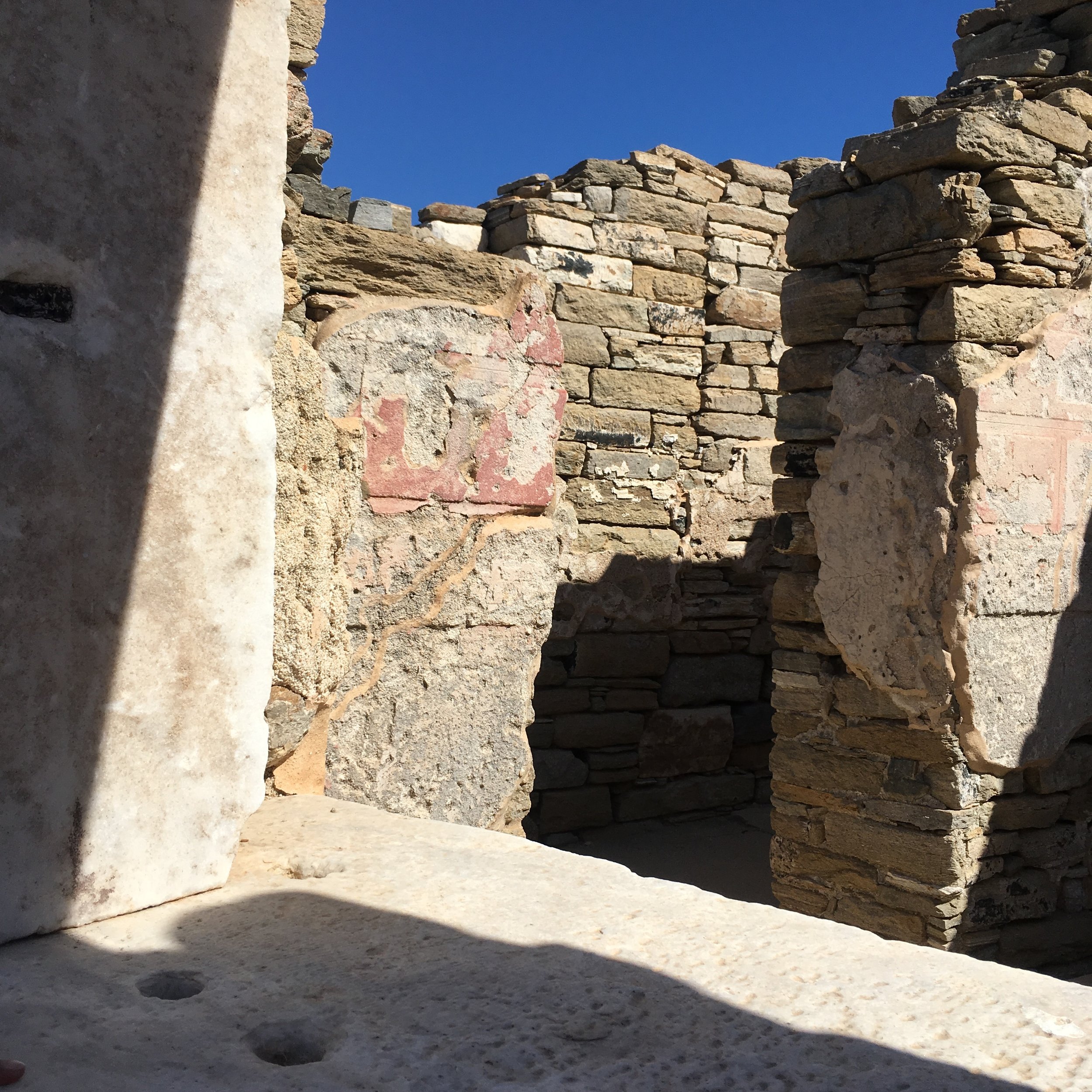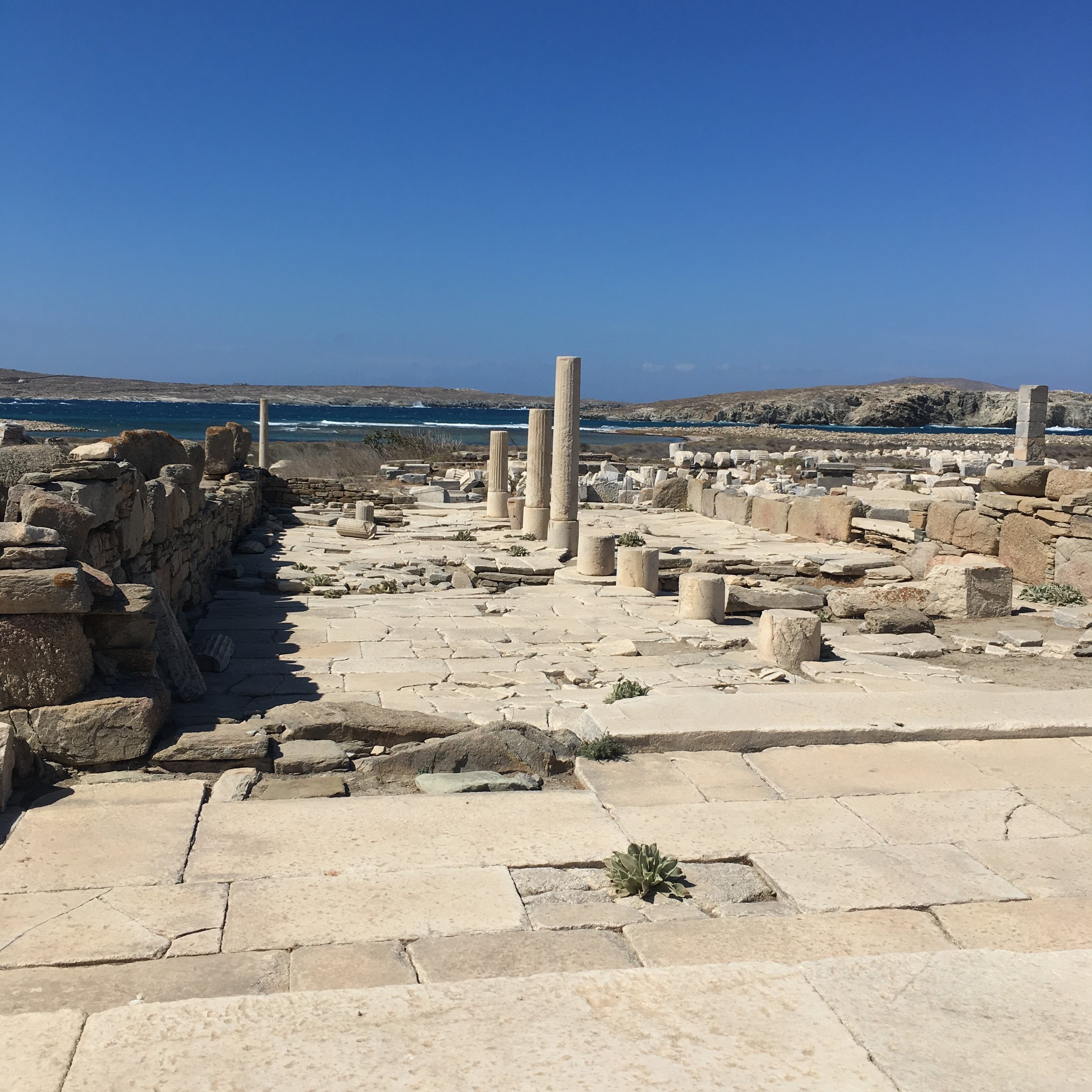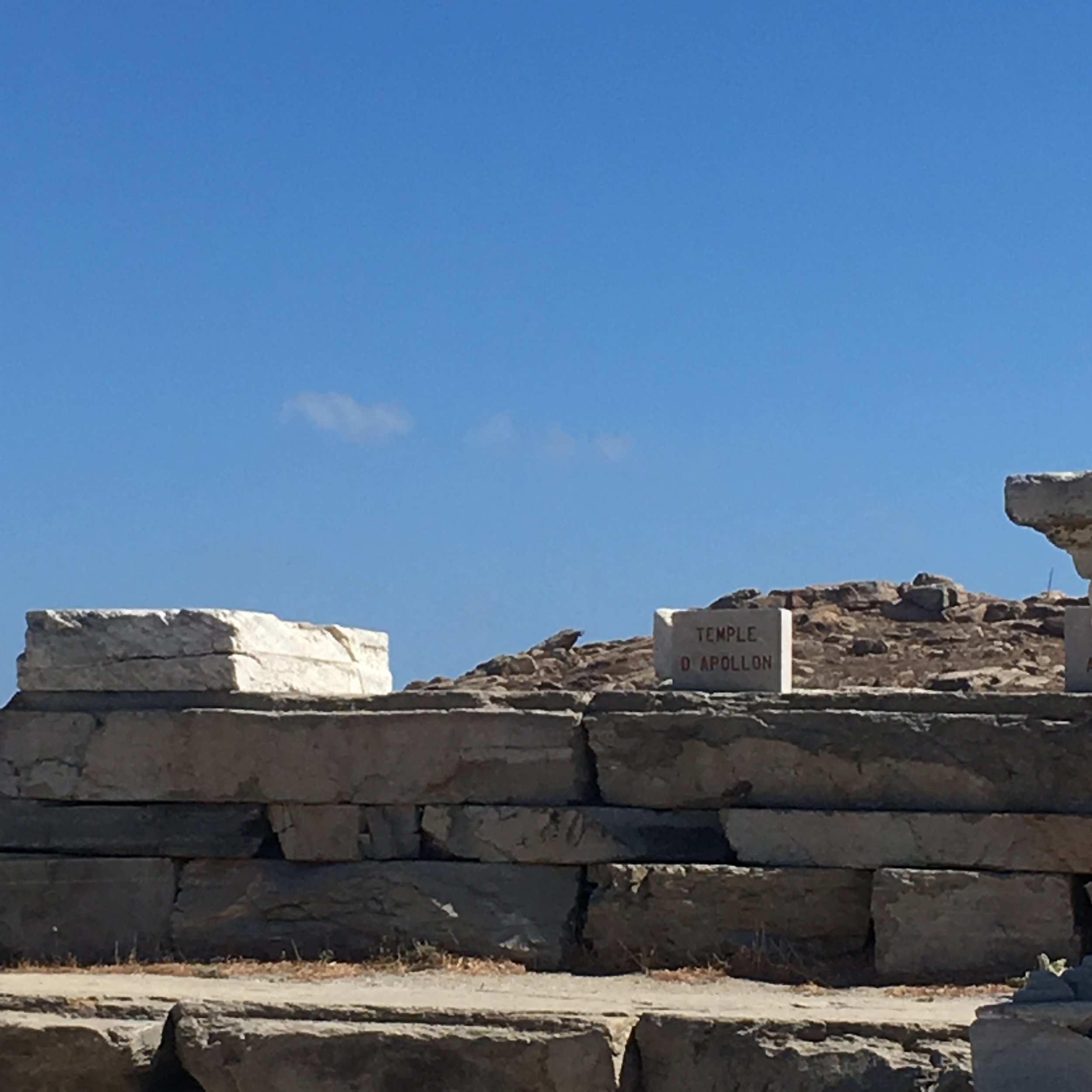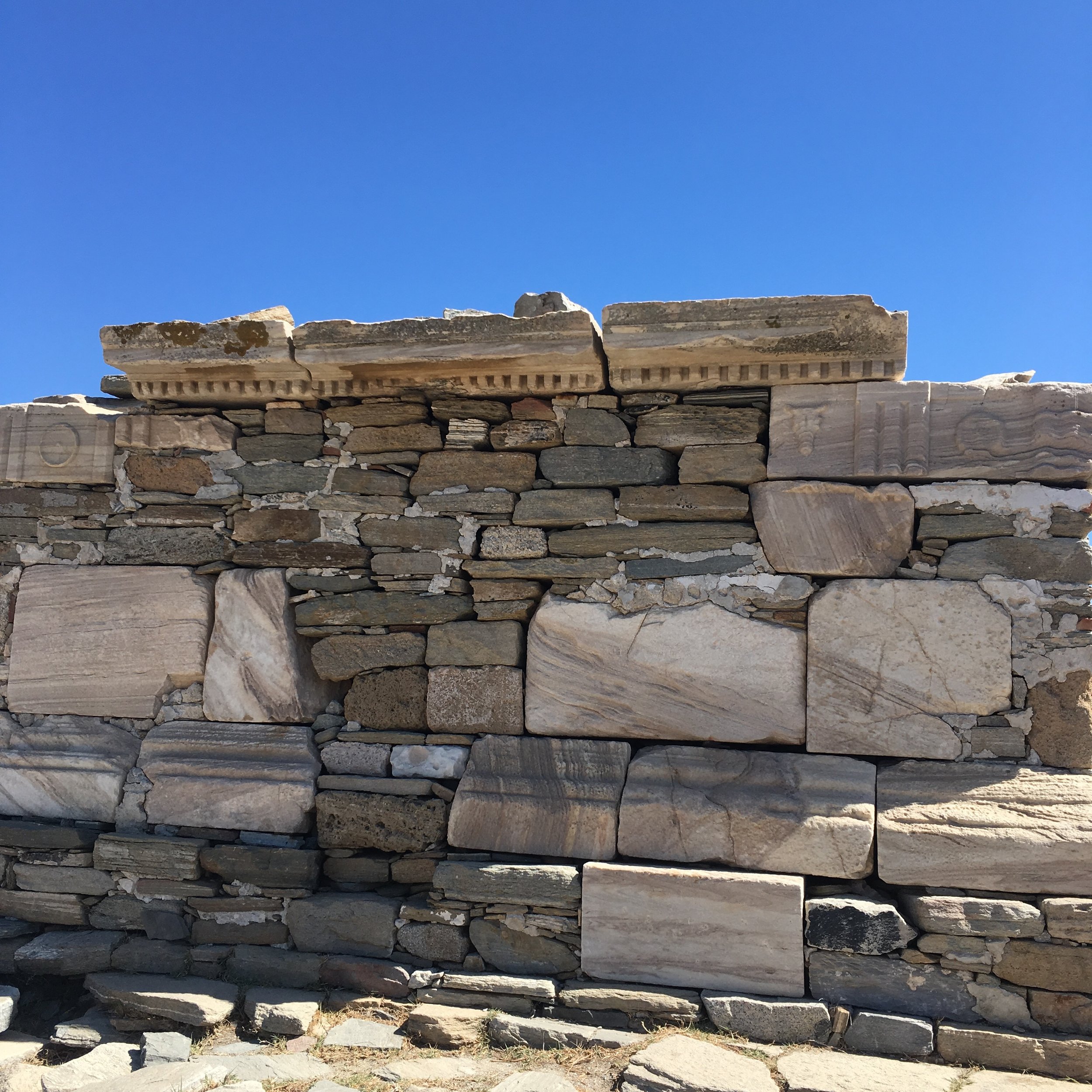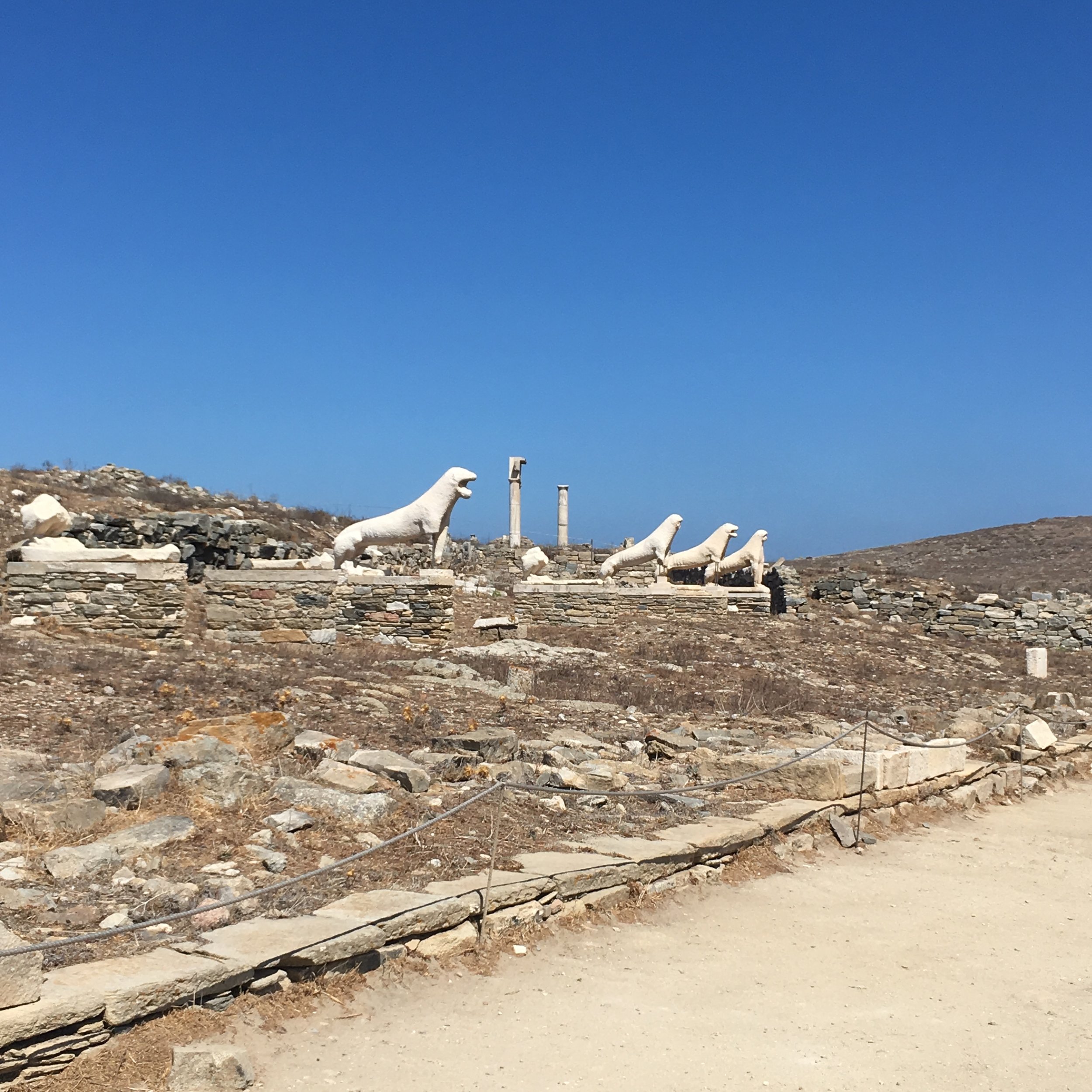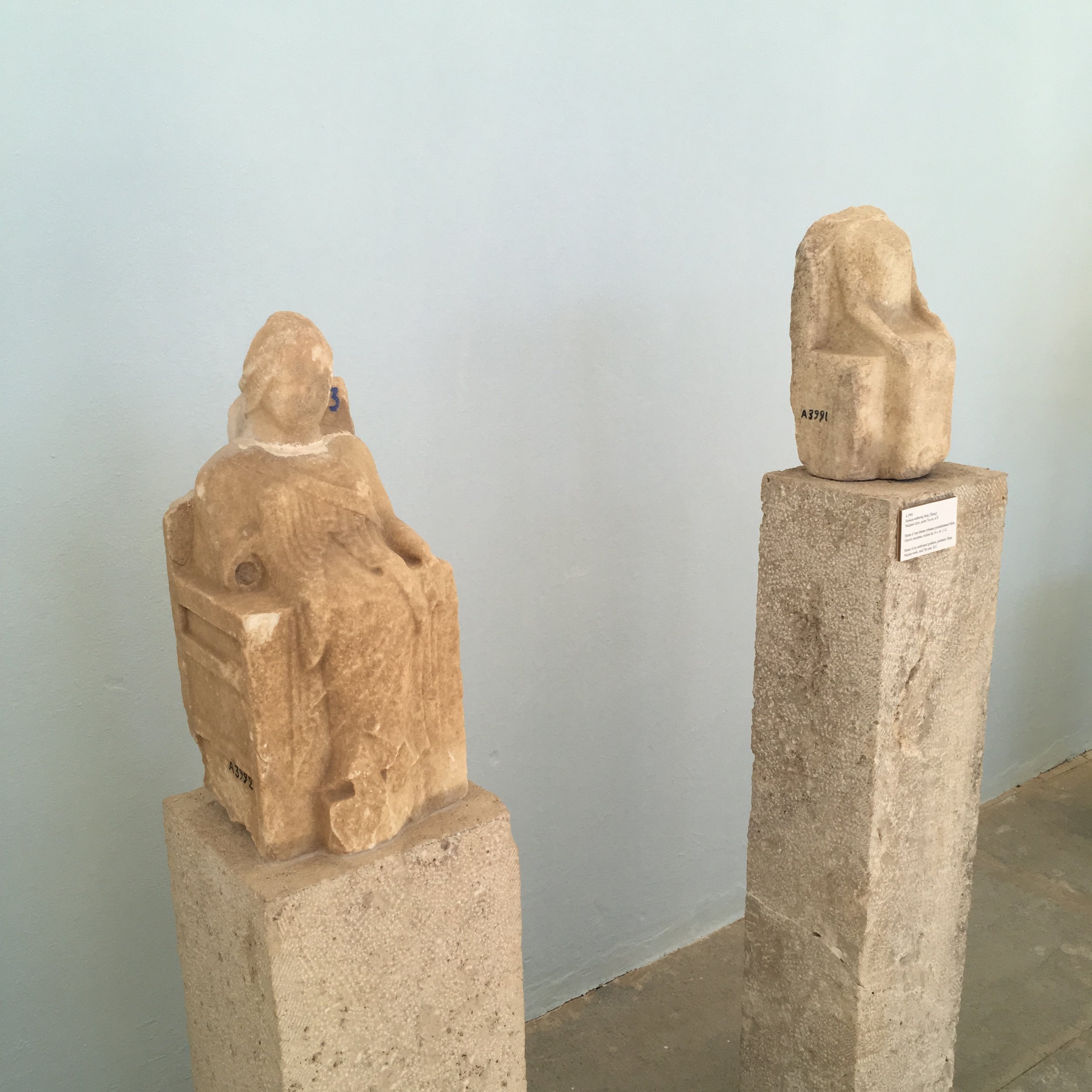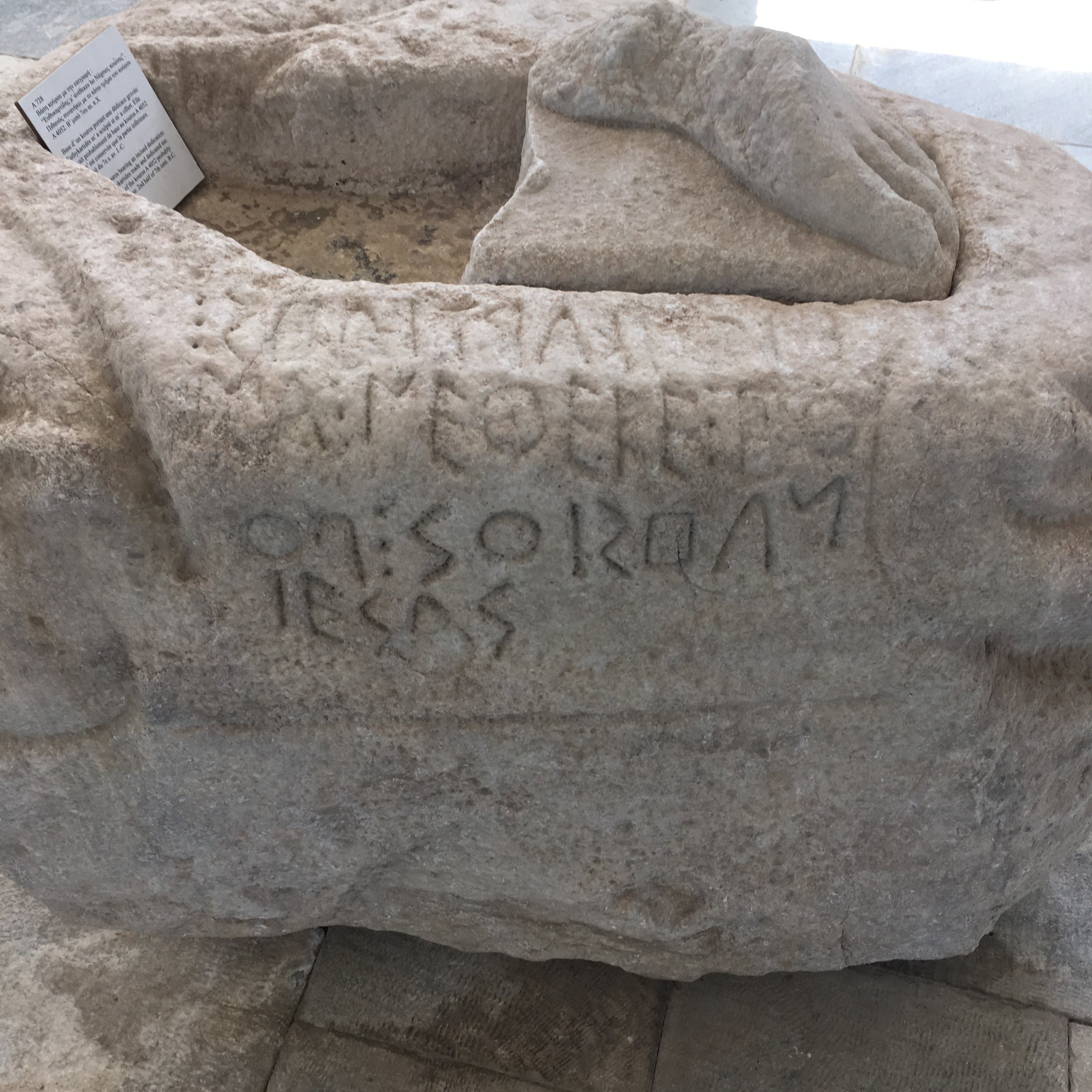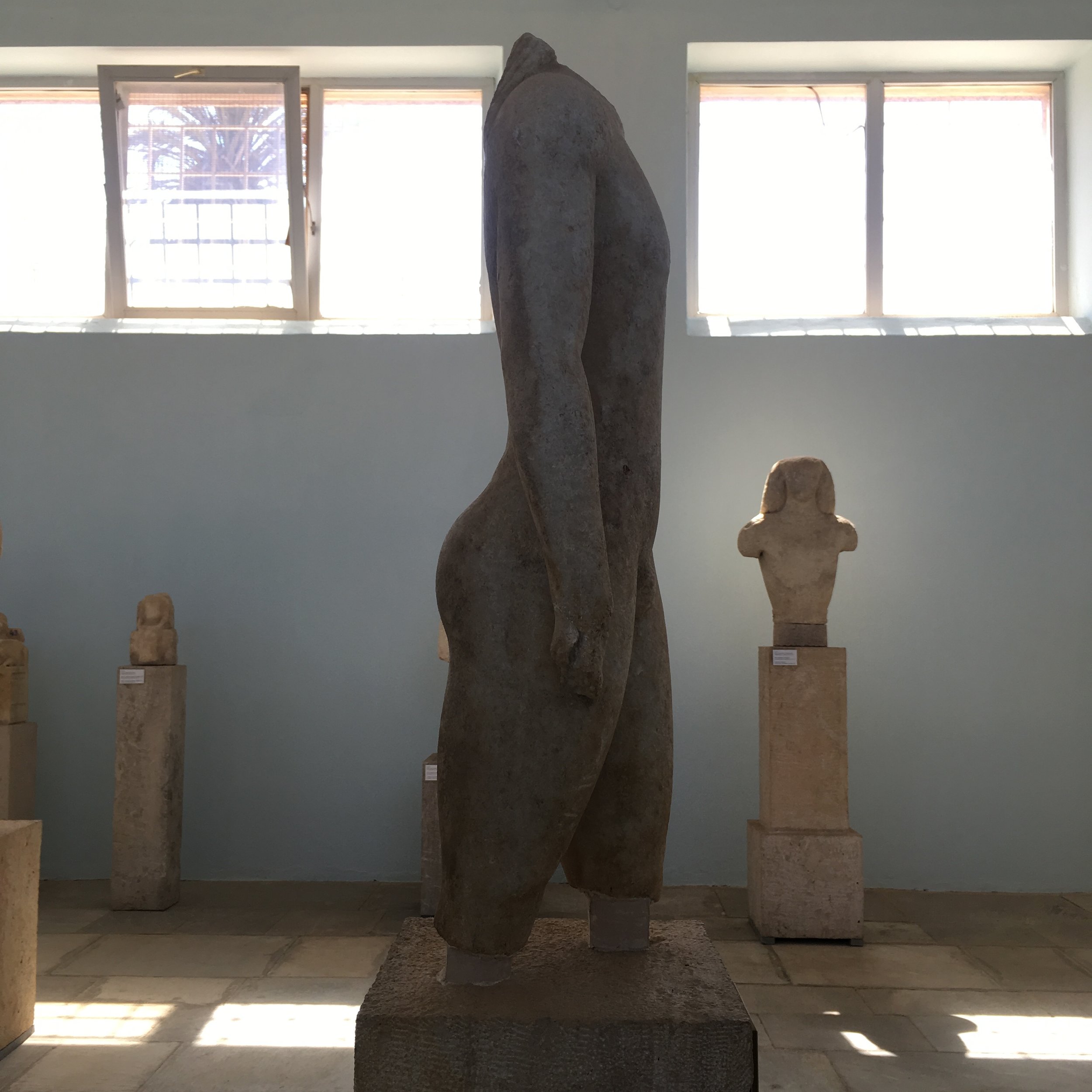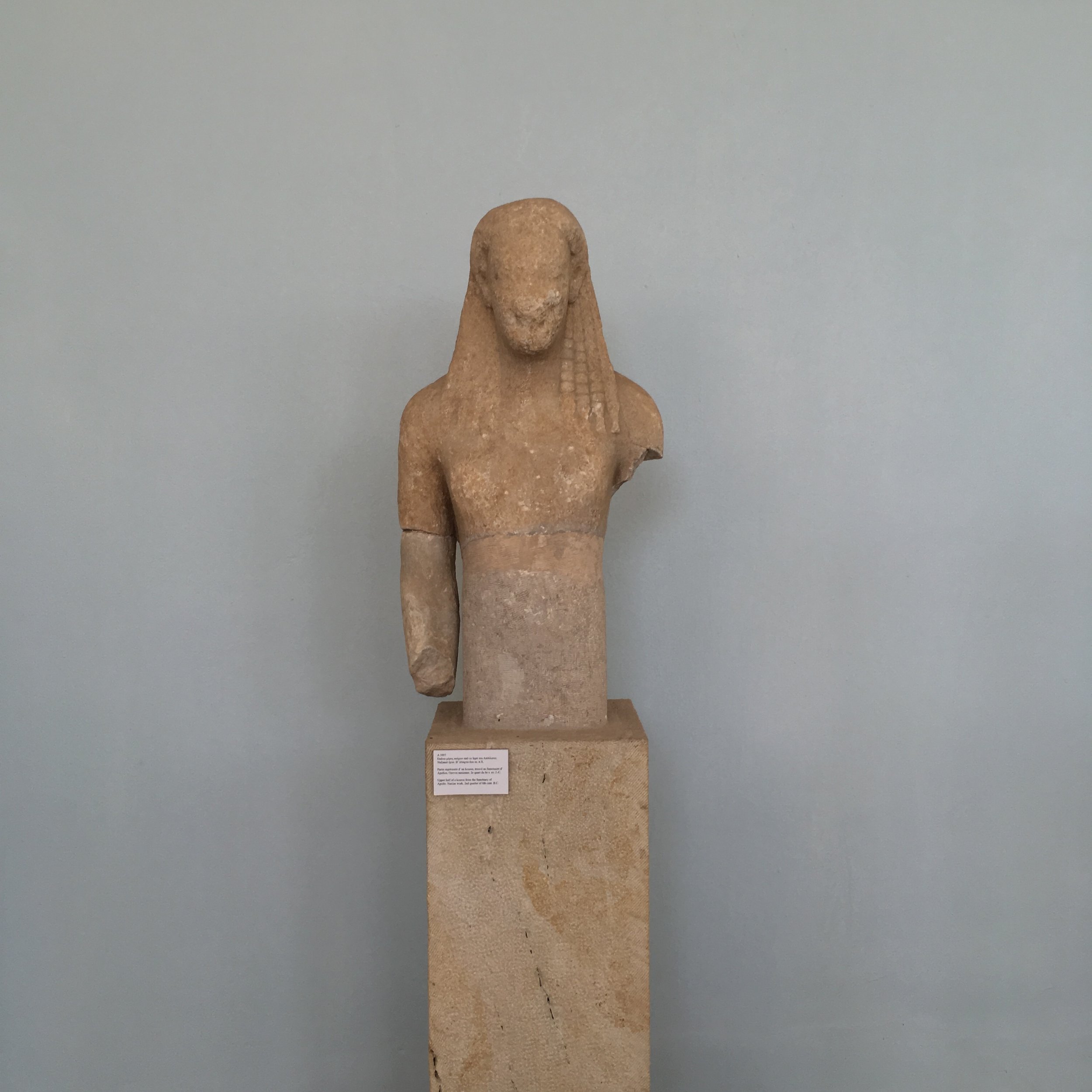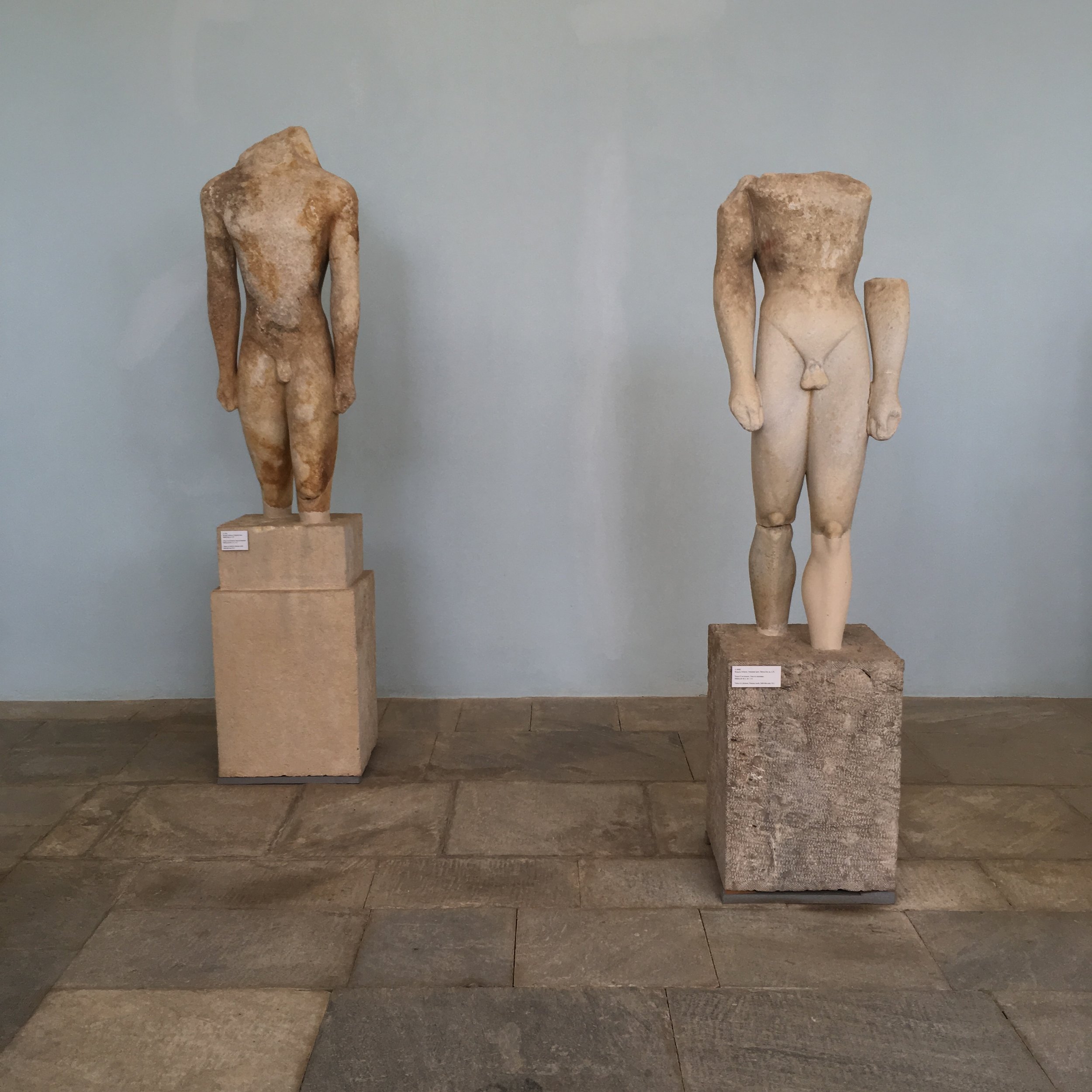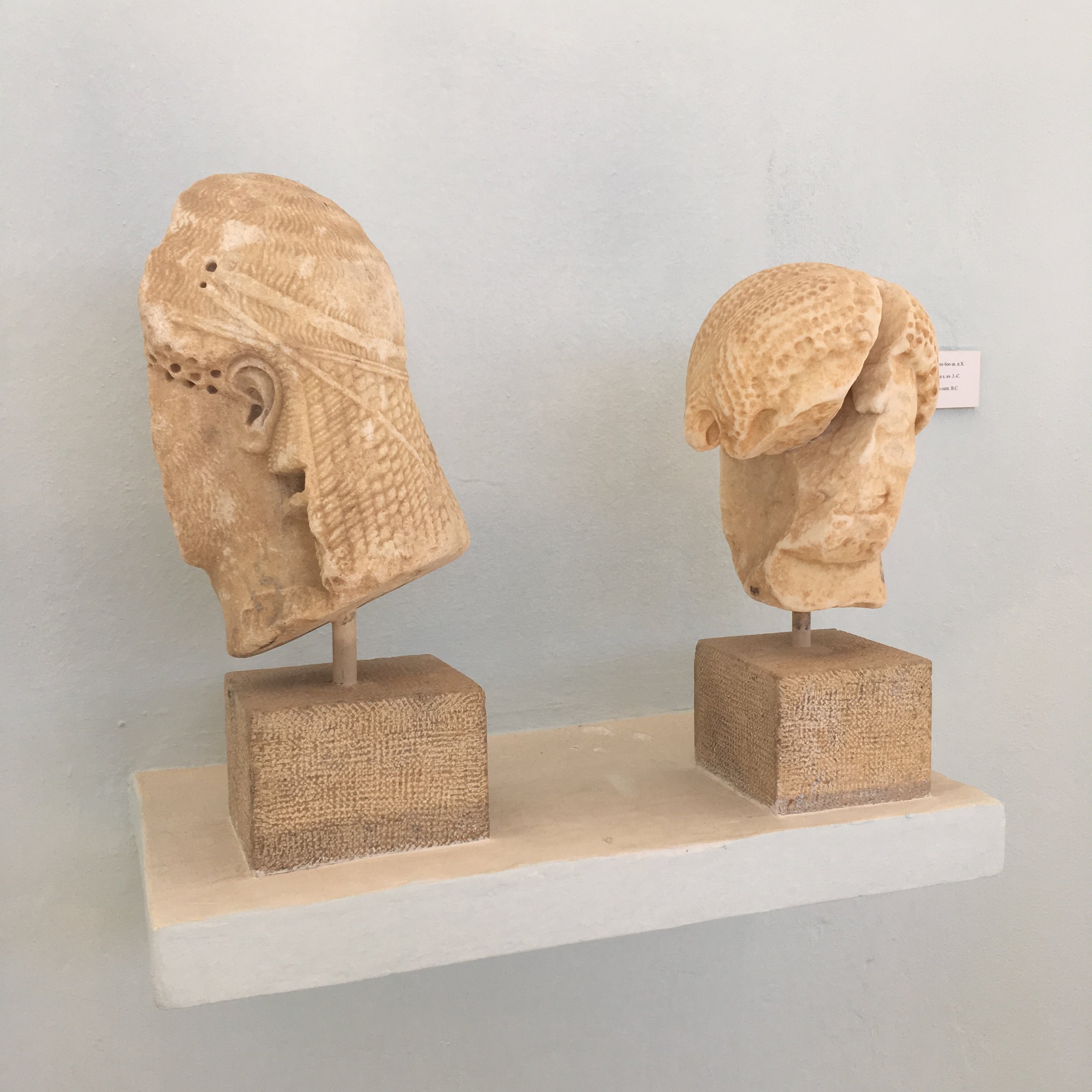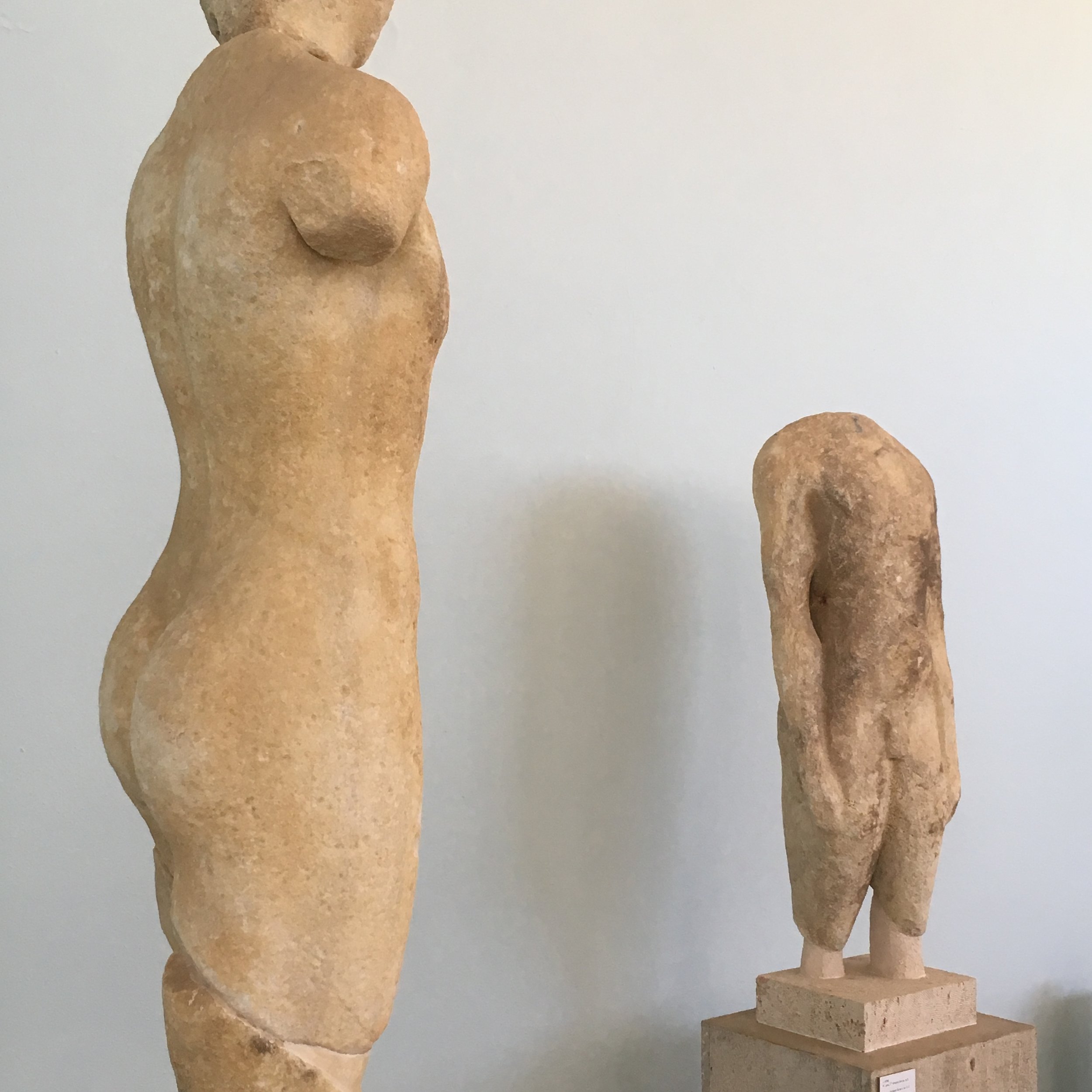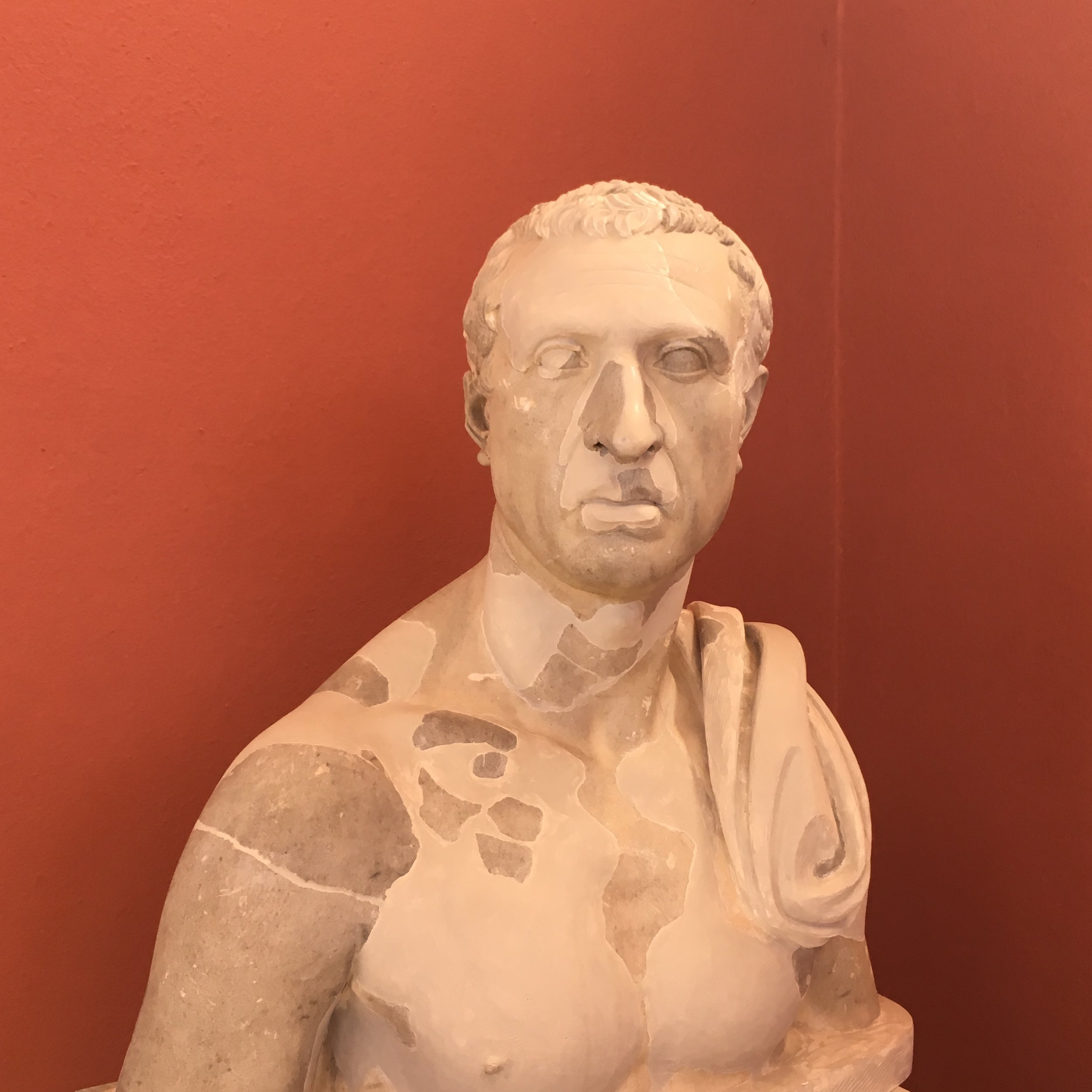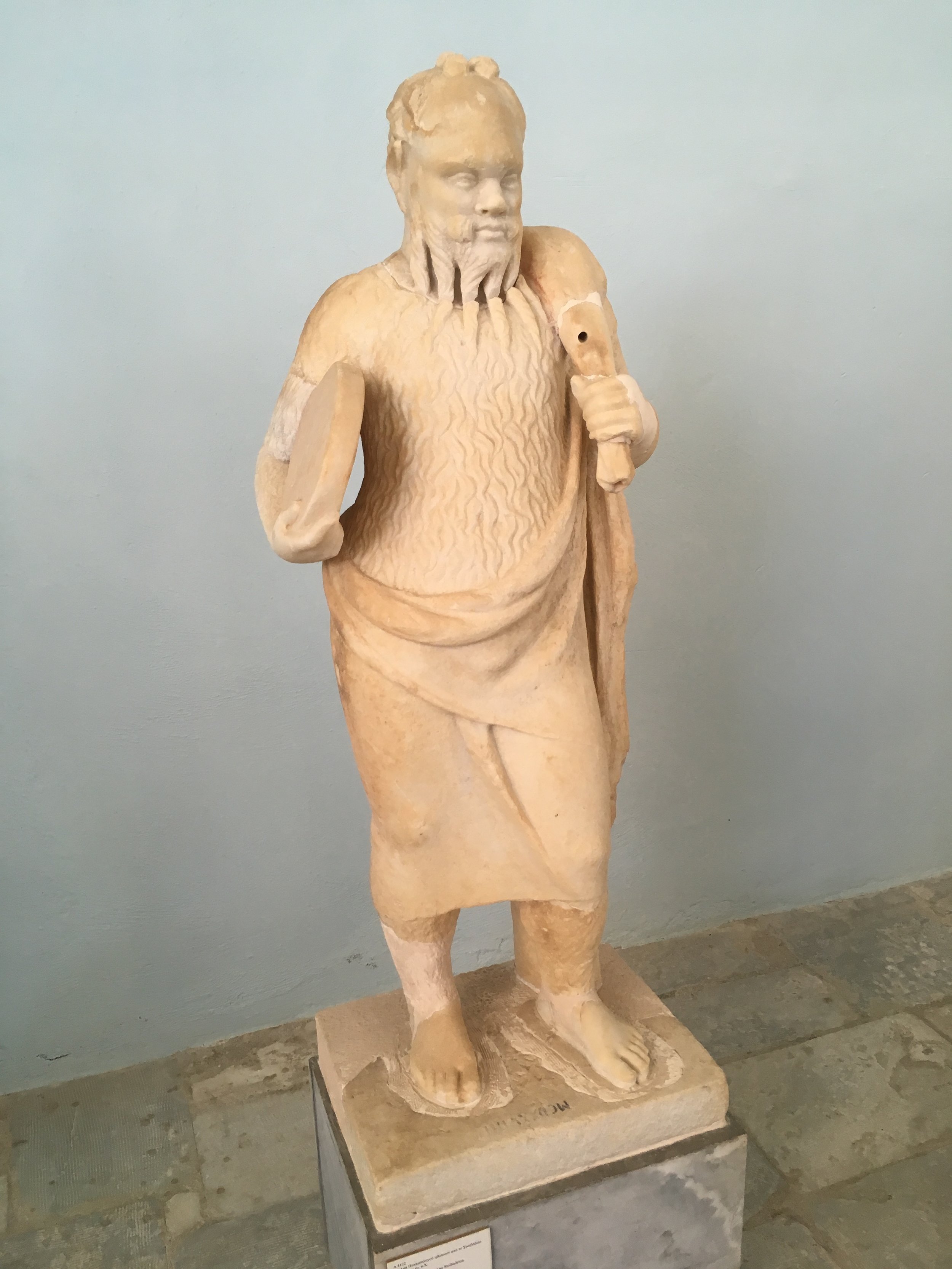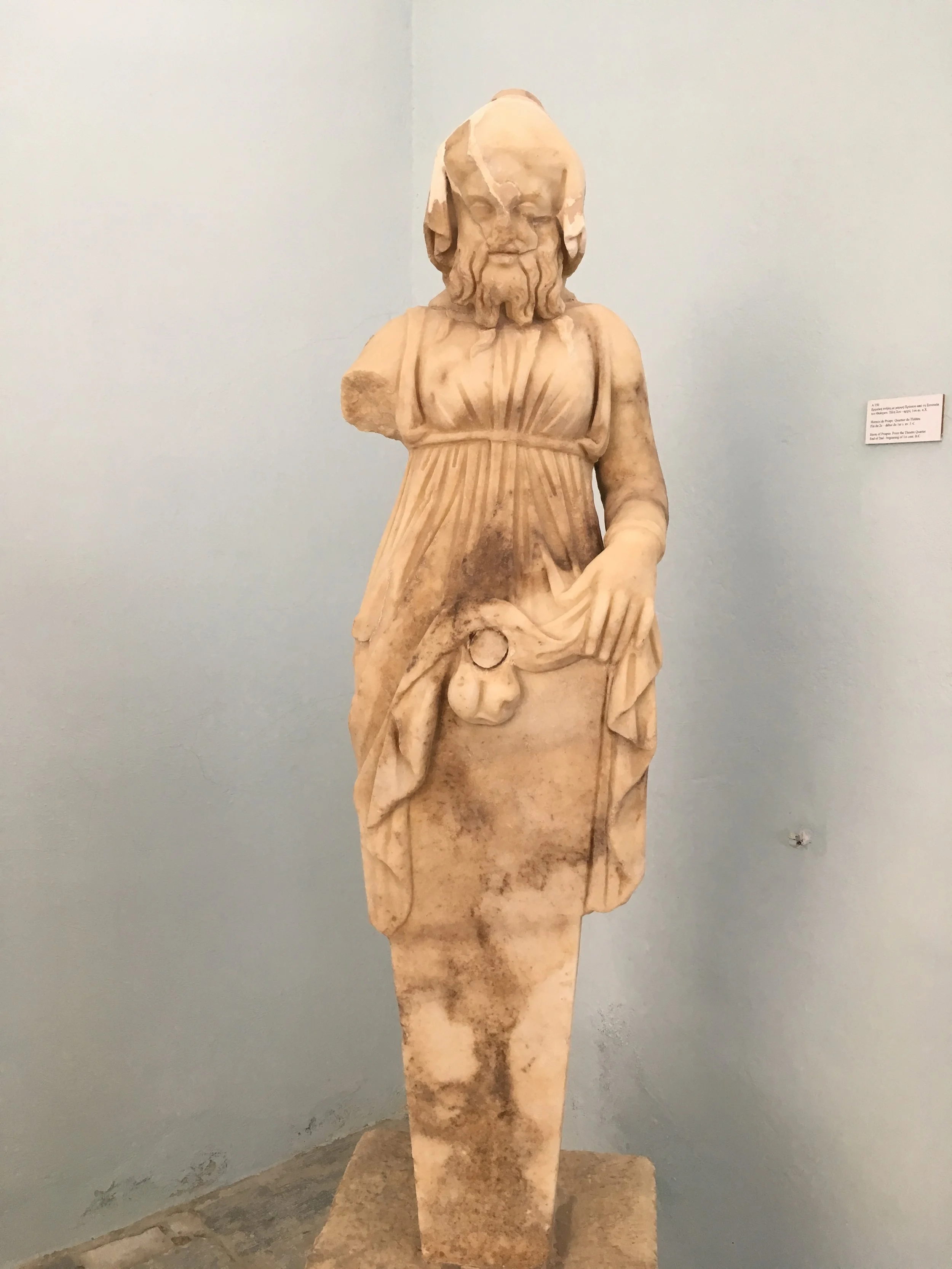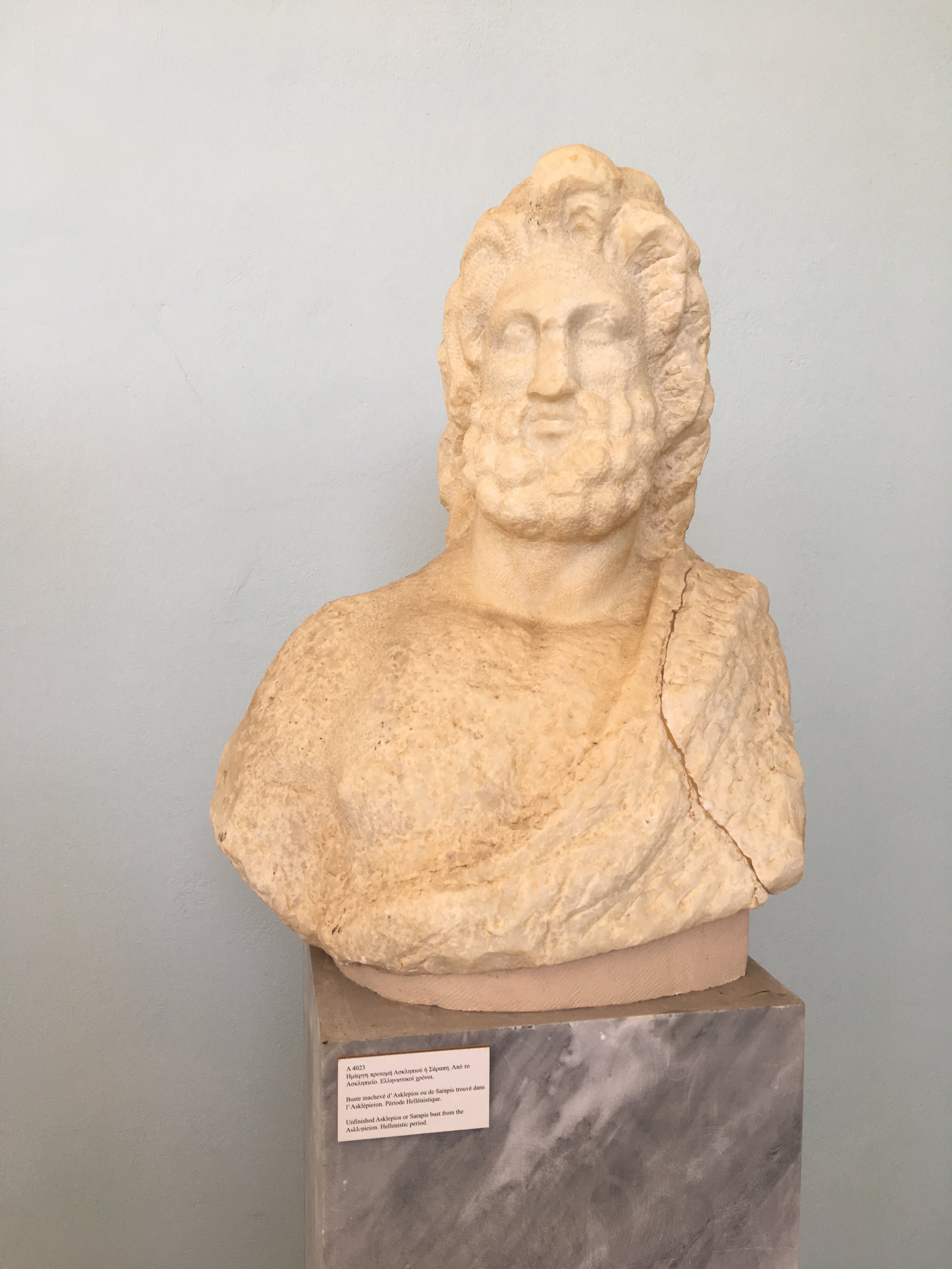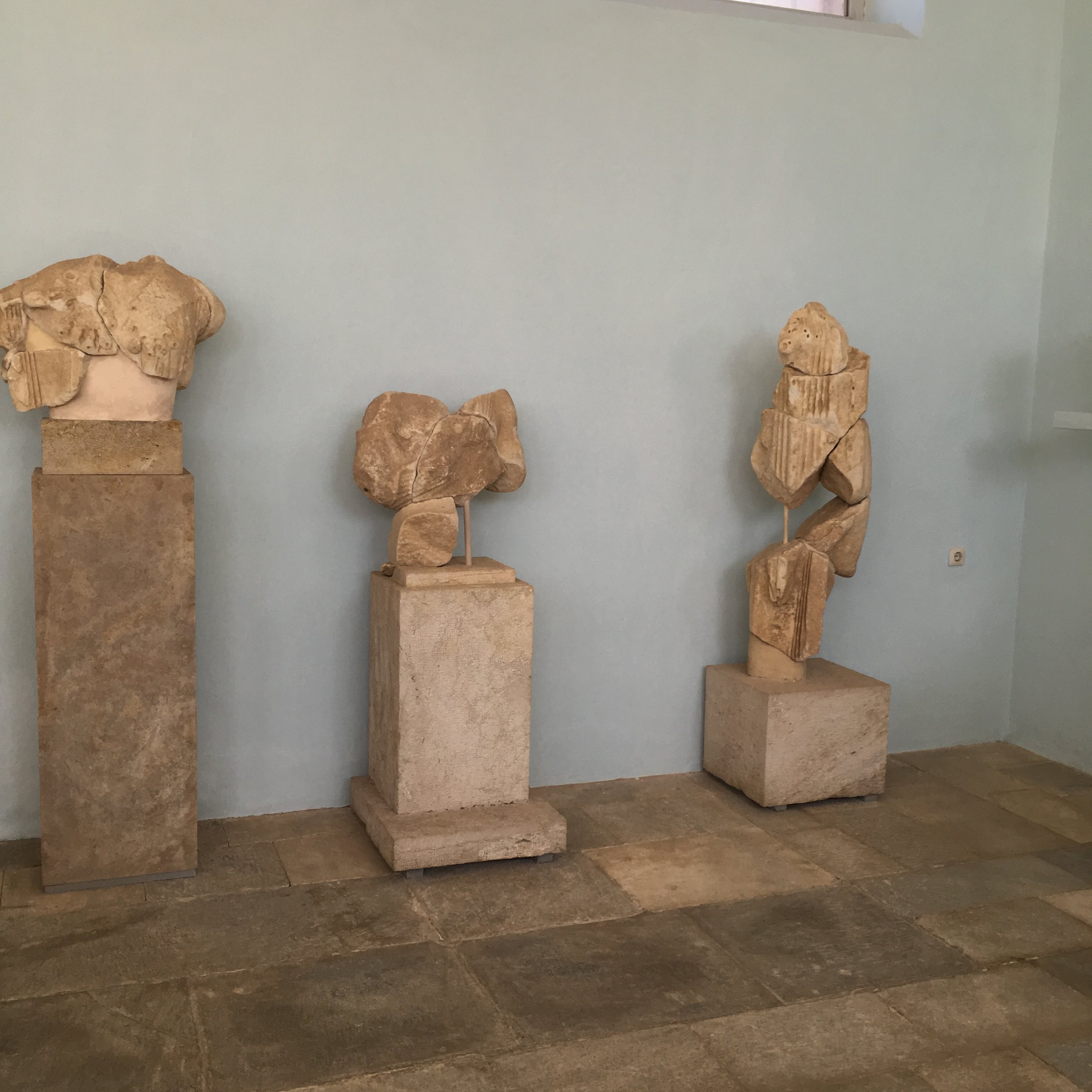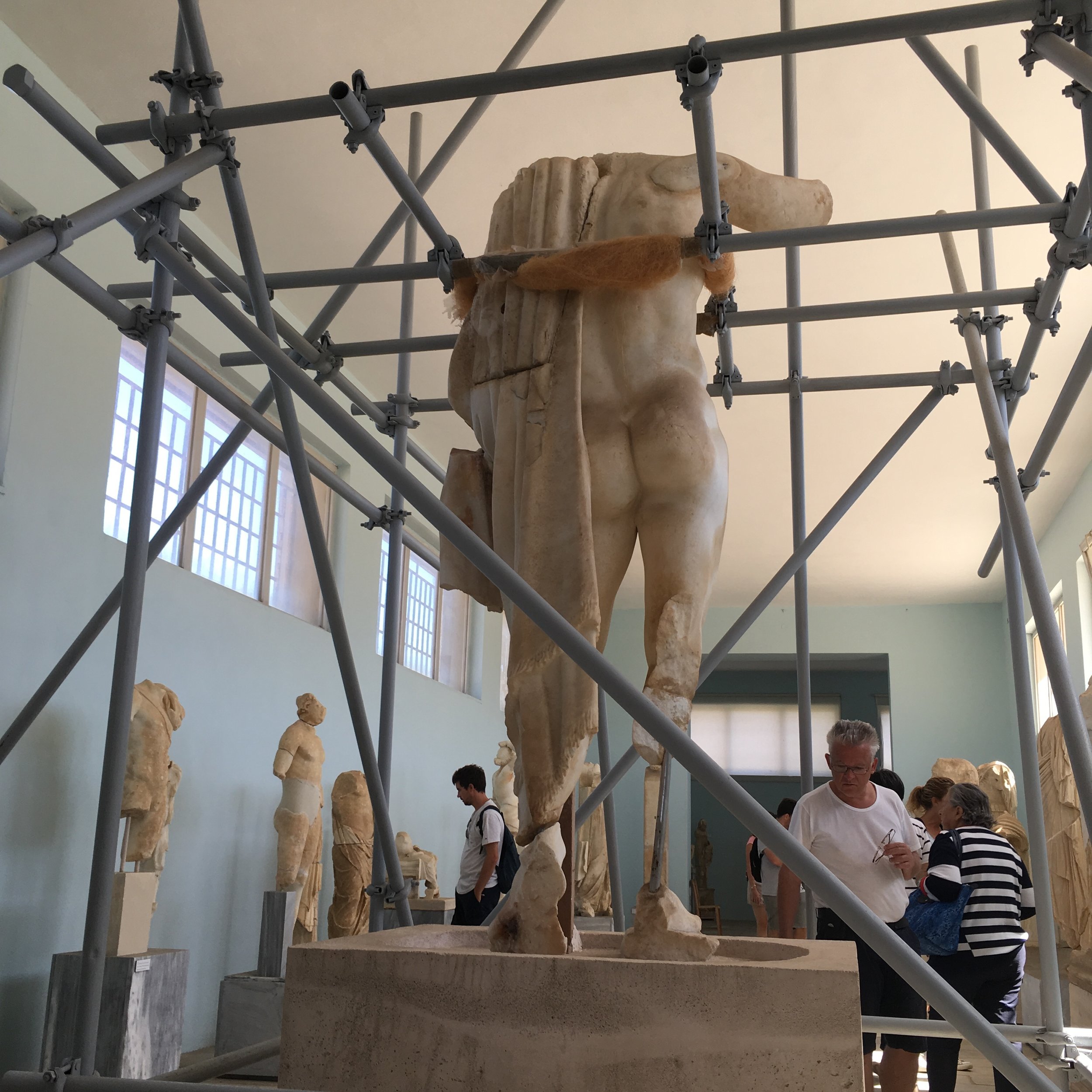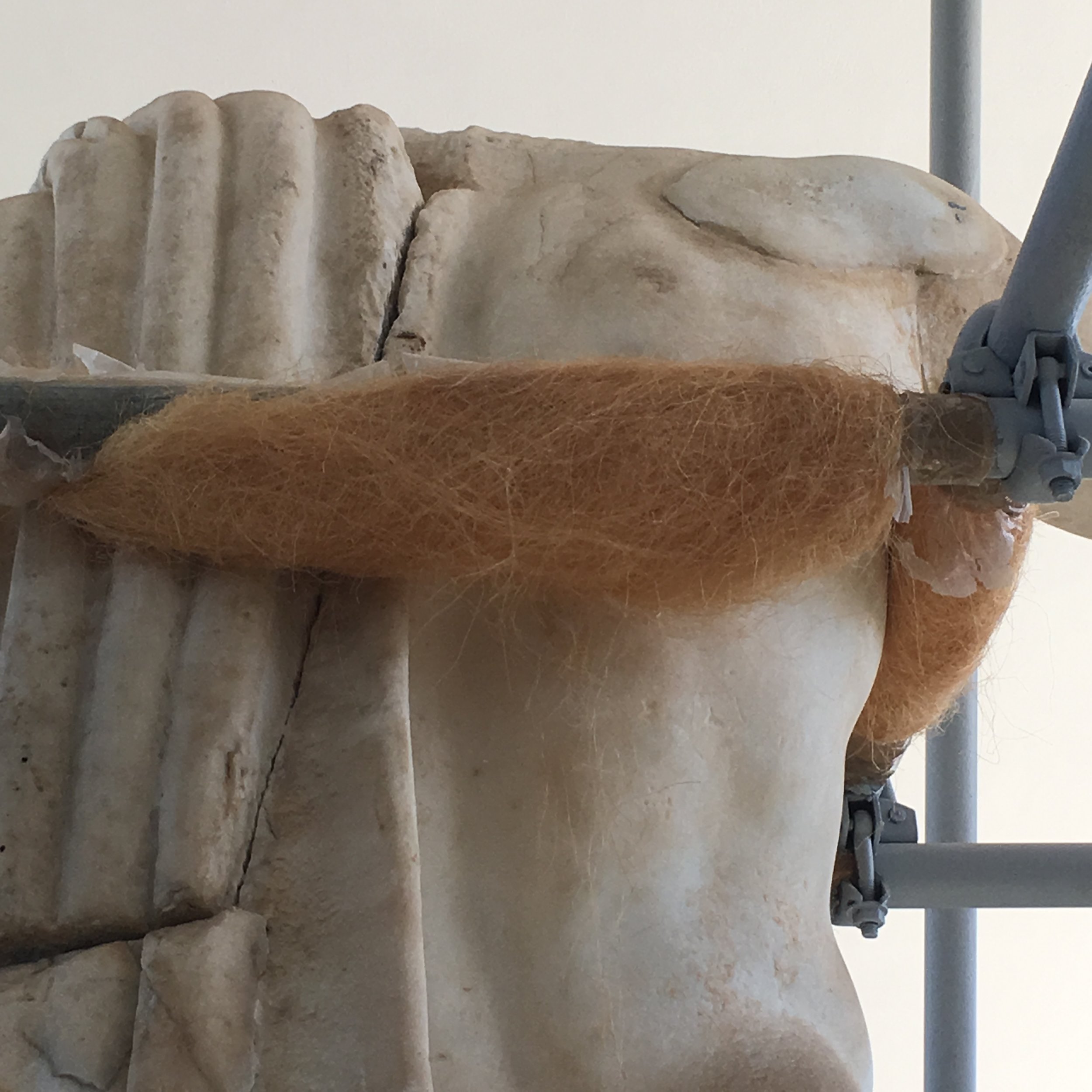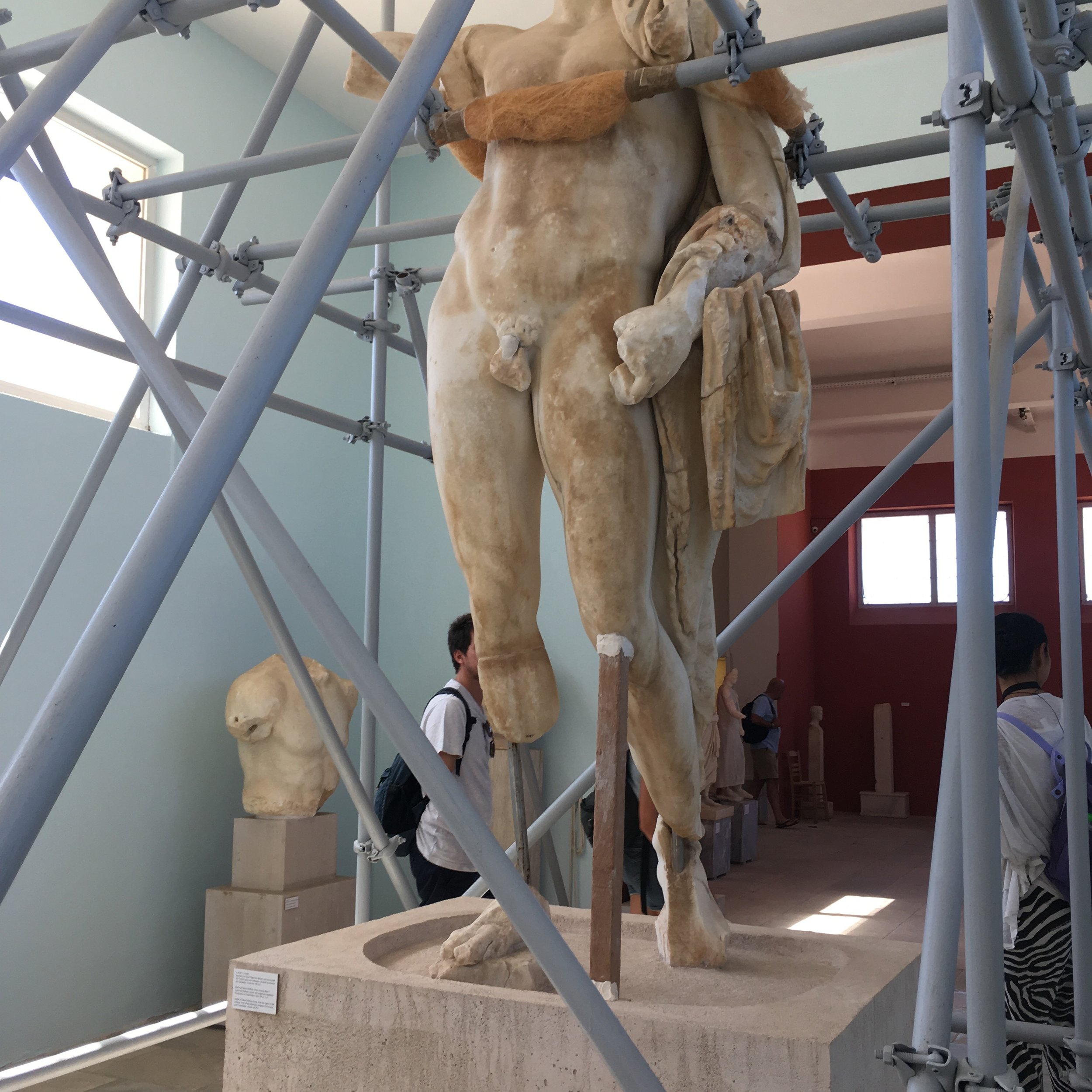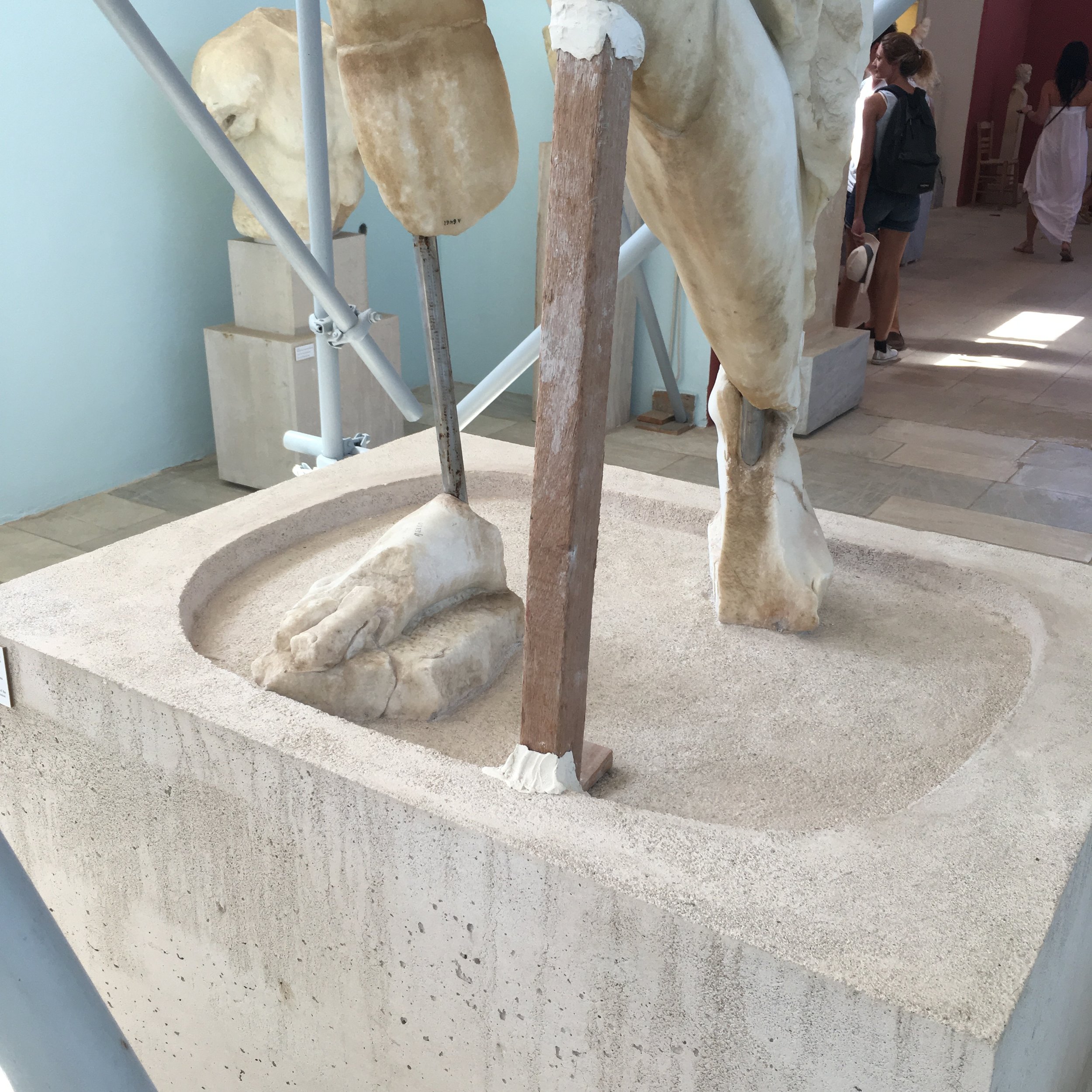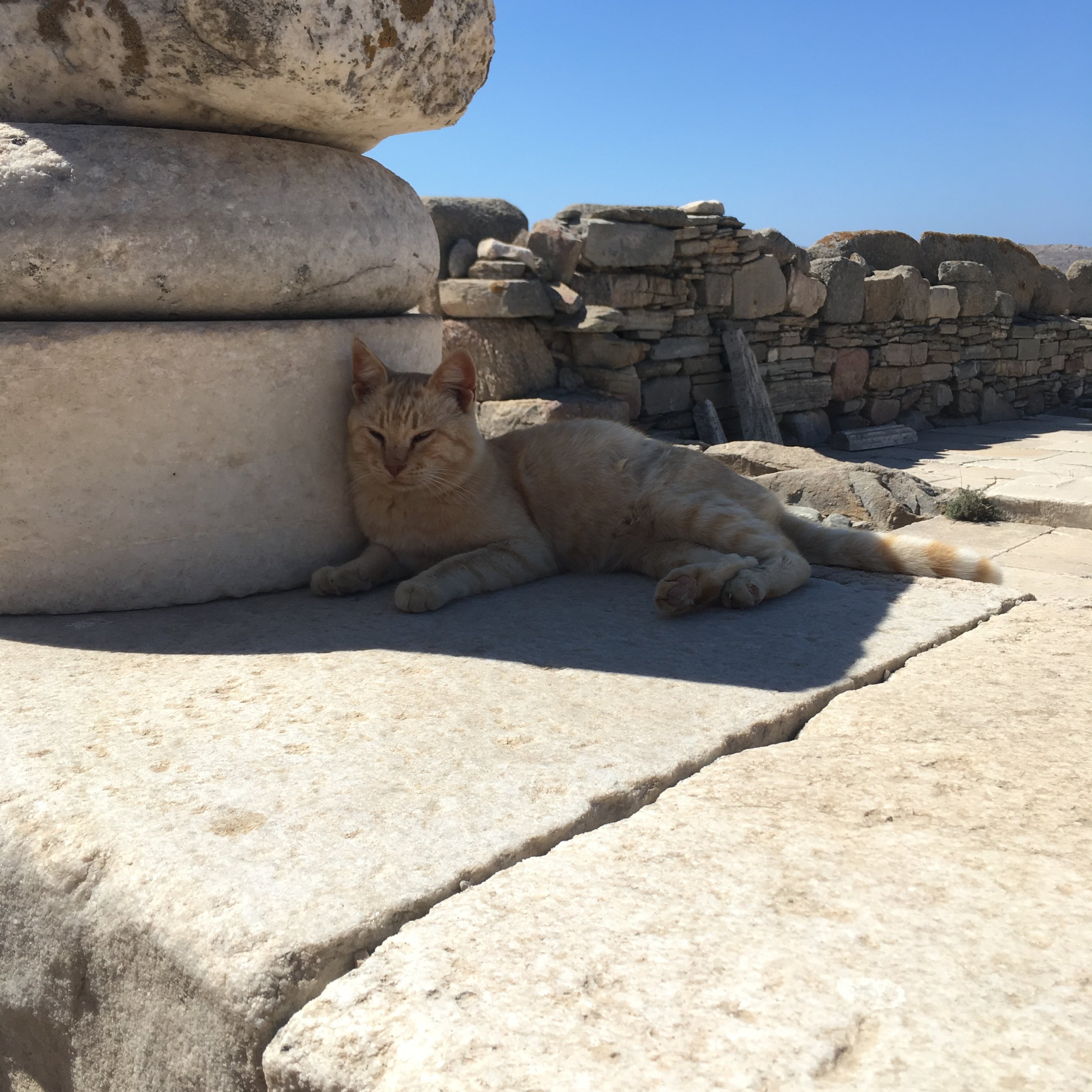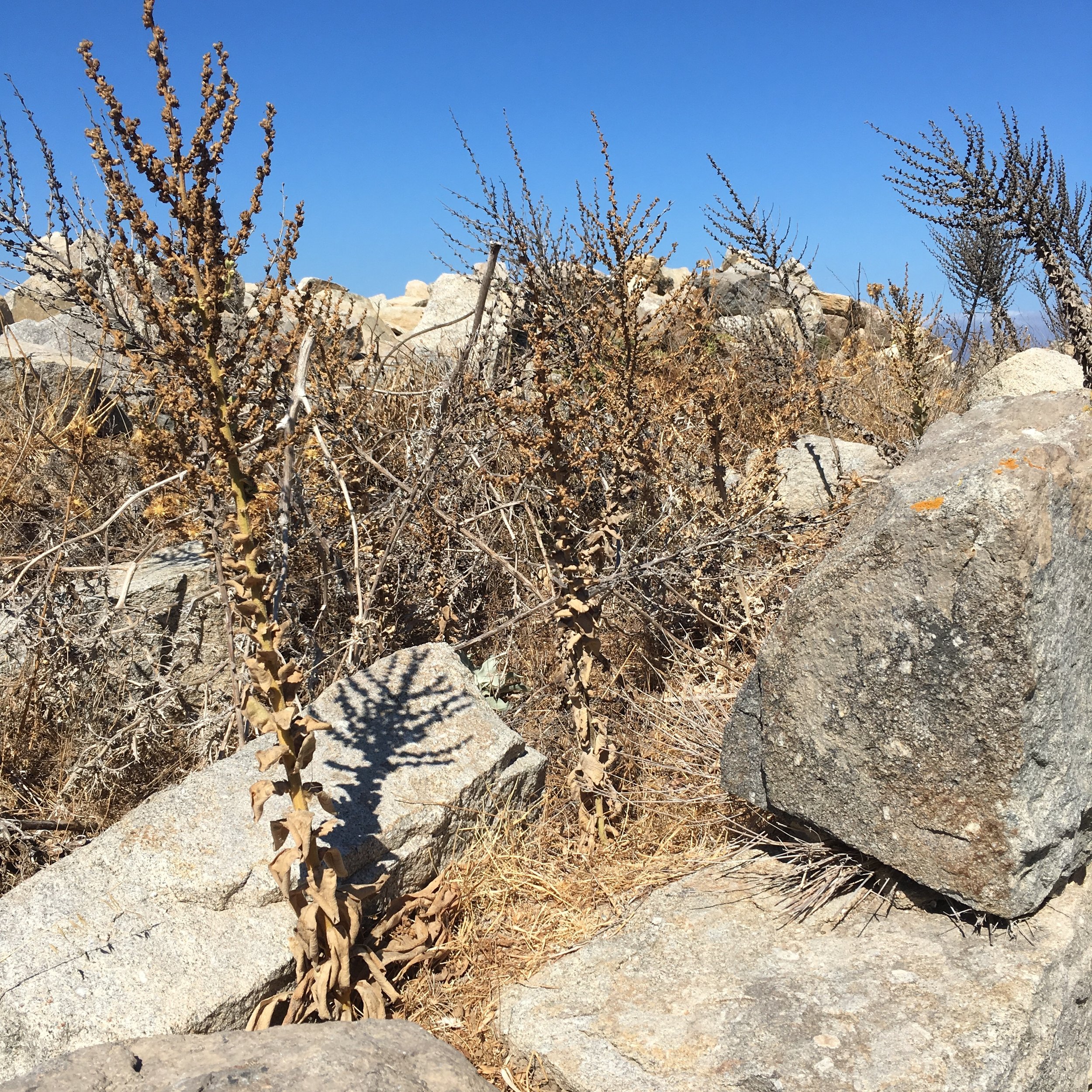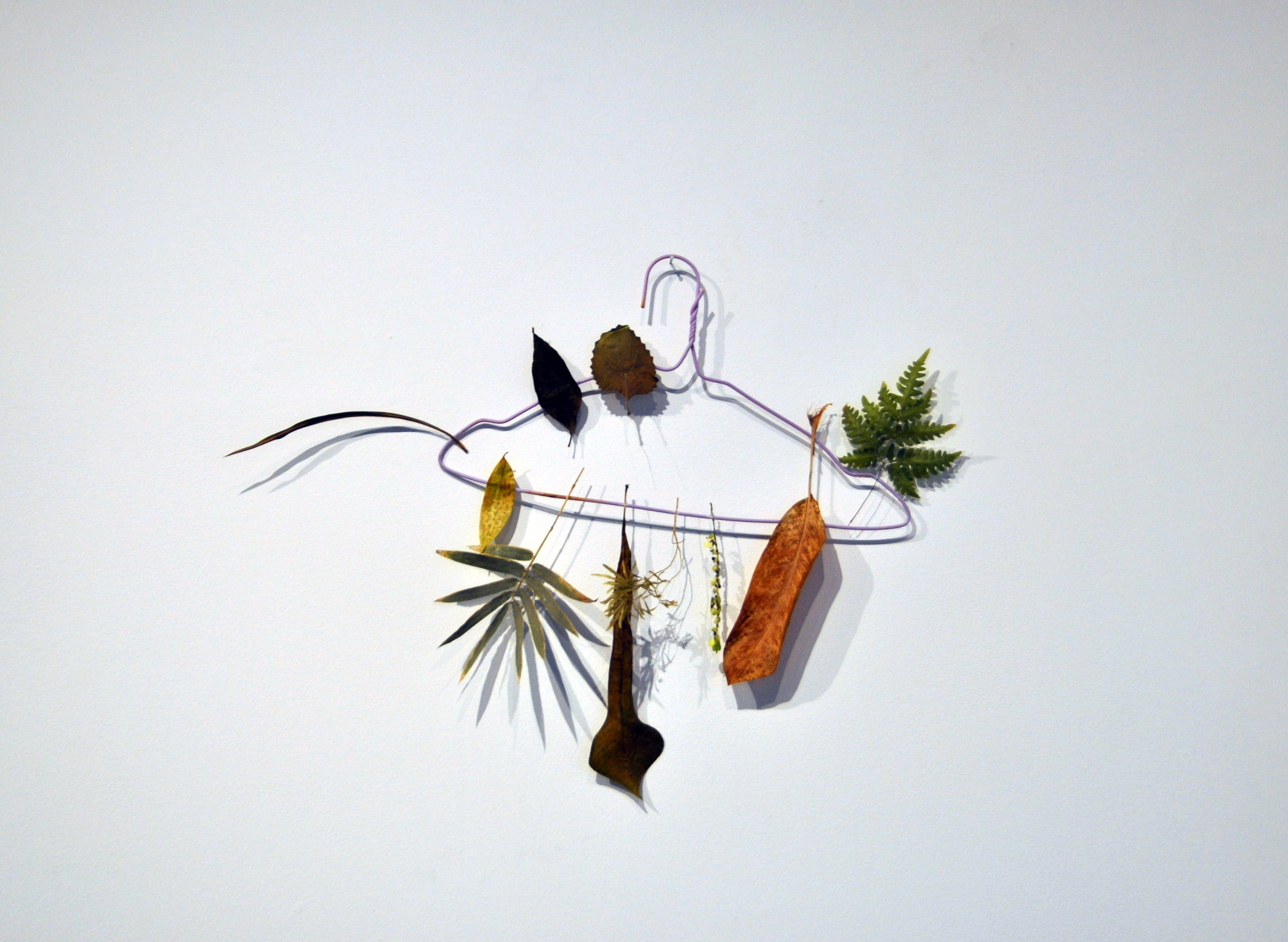Sculptures of Delos
Entry by Kuh Del Rosario
28 Sep 2018
The guided tour on Delos Island started with an almost two hour ferry ride across choppy waters from the old port in Mykonos.
Hundreds of tourists were herded off the ferry onto shore. Wind-swept, and on sea-legs, People struggled with their hats and scarves, confused as to how to proceed. But the seasoned tour guides, held up paddles with numbers, shouting English, French and Greek instructions eventually wrangling the masses into manageable groups.
The island itself was almost barren and quite flat, save for a peak in the distance, which was not part of the excursion. The guide had mentioned a temple that once stood there, but dedicated to which god, I cannot recall.
The origin story of Delos is sordid and juicy, which may be what brought me to the island in the first place.
Hera, Zeus' wife, had gotten wind of another of his escapades. This time with a titan named Leto. In a jealous rage, she focused her wrath on Leto, who turned out to be pregnant. Forbidding anyone under the sun to give Leto shelter, Leto was forced to walk the earth during labour seeking anywhere to deliver her baby. Hera also kidnapped Eileithyia, the goddess of childbirth in case Leto's labour wasn't hard enough. Leto ended up discovering a floating island, which may or may not have been a result of Zeus' intervention. She gave birth to Artemis surrounded by swans. However, it turned out she was having twins, so the ordeal was not quite over. Leto was in labour for nine more hours (or longer depending on the source) and acting like her little doula, Artemis helped her mother deliver her twin brother Apollo. The birth of Artemis and Apollo anchored the island and was floating no more. Hera continued to send danger to the trio, but the little baby-gods Artemis and Apollo, were already skilled archers and protected their mother from rape and possibly murder.
With such an auspicious beginning, the island has undergone a series of purifications to ensure the land is fit for worshipping the gods. Dead bodies were exhumed and transferred elsewhere, accompanied with a declaration that no one is allowed to die or give birth in Delos so that it is not possible to claim land through birthright or inheritance.
A black cat slinked from the sidelines and laid on the shadow of our guide in the middle of her story about a famous play.
The tour started at the ruins of the residential district with a short stop at the Delos agora. Seated at the front row where officials and royalty once sat, the group listened to the guide as she recounted a famous play performed at this very spot. In the midst of her account, a black cat slinked from the sidelines and laid at the patch of shadow the guide created. This cats' brazen gesture was the first of many. Strutting and rubbing up against ankles and feet, the feline residents of Delos were more than used to the hoards of tourists that came so frequently.
The walk continued for another hour, stopping often but not covering much ground. The guide did her best to fill in the gaps, having to describe what piles of rubble used to be and what once stood on now empty platforms. The island was devoid of any colour apart from the neutral beiges and terracottas of the landscape.
A cluster of shrubs and low lying trees by the Terrace of Lions (made by people who only imagined what lions looked like), marked what used to be the Sacred Lake. The guide pointed out this was where Apollo was delivered, while Leto leaned against a tree. Oh my.
The tour finished at the Delos museum where much of the valuable artifacts from the site were on display. The museum was flooded with natural light, which helped to imagine the sculptures in their natural element.
Though the island is pretty much levelled from past wars, natural disasters, and perhaps even looting, the place still had a magical quality. To imagine Gods walking through this beautiful land was not hard.
Of everything learned that day, what captured me most were the domestic sculptures collected from the ruins. What is more commonly known and widely studied, are the sculptures found in palaces and temples, made with religious and political motivations. But the sculptures found in private dwellings signified private agendas and reflected more personally, the peoples' concerns of the times.
Though the people that were able to commission these artworks were high-ranking officials and far from common folk, it gave a better understanding of how people lived and what they cared about. Sculptures, strategically placed, announced wealth and status. Some were self-portraits and others of celebrated gods and kings.
Philosophers such as Socrates despised this burgeoning opulence, but it had become the trend, and for an island who also celebrated Dionysus the god of wine and ecstasy, it made perfect sense.
The tour guide had mentioned the domestic sculptures also acted as stand-ins for the residents of Delos who were mostly recluse. Because of the transient nature of the Delos community, made up of merchants and travellers, there was a general mistrust of neighbours alike. Dissatisfaction with the government also played a role in this phenomenon.
However, upon further research, no other writings or papers were found to substantiate her claims.
Delos, if you would be willing to be the abode of my son Phoebus Apollo and make him a rich temple –; for no other will touch you, as you will find: and I think you will never be rich in oxen and sheep, nor bear vintage nor yet produce plants abundantly. But if you have the temple of far-shooting Apollo, all men will bring you hecatombs and gather here, and incessant savour of rich sacrifice will always arise, and you will feed those who dwell in you from the hand of strangers; for truly your own soil is not rich.
— Homeric Hymn to Delian Apollo 51–60
This visit to Delos Island was part of a two-week journey to Greece, for leisure and exploration. The time away from Batan acted as a recharge, inspiring new work and providing much needed perspective.


